[in translation]
Over the past few days, the media are expressing their gratitude to the National People's Congress' Standing Committee for eliminating the article on allowing the local governments to fine the media for "breaking discipline to report on suddenly breaking incidents" to "the sum of 50,000 yuan or more but not more than 100,000 yuan." But from another angle, this article actually does not need to be removed because there are more advantages to have it there.
There are two reasons for saying so. First, this is a predictable deal which is actually worthwhile. If we treat the newspapers and magazines as an enterprise, we can calculate the investment and the return. According to the previously proposed article of law, if the media did not obey the orders from the relevant government officials and "unilaterally" reported the truth about the suddenly breaking incident, their revenue will definitely increase several times over. The intangible results include the respect of their peers in the industry and the love and esteem from their readers. The directly observable results are the increase in rising circulation and the increase in advertising income. The 50,000 yuan (or 100,000 yuan at the most) fine is basically just a half-page color advertisement in the newspaper. For most of the media in China today, this amount of fine is a pittance. Based upon this accounting idea, the law article would give a great deal of freedom for the media to report on suddenly breaking incidents -- the media will just be paying a relatively small sum money to make news reports.
Secondly, the fine can even be haggled. When the government fines the media, it is an administrative fine. If the media is dissatisfied, it can appeal and ask for a review by the next level of the government. If the media is still dissatisfied, it can appeal to the People's Court. But this kind of administrative case will draw the attention of other media and get extensive coverage. With the public pressure on, the relevant department may just let the case slip instead. Now the returns for the media to report "without approval" become even bigger, while the costs are almost zero.
But if you think about it more, you would know that the media don't really care about the several tens of thousand yuan in fines. Any legally stipulated fine is predictable and calculable, and there are legal channels through which to seek remedy. The media are really more afraid of those unpredictable and unfathomable personnel decisions, such as dismissing the reporters, replacing the chief editor, internal re-organization, ceasing publication, or even loss of personal freedom as in the Pengshui SMS case. These are many such cases in the past. As a result, this leads to the typical scenario: there is a suddenly breaking incident; only the national and out-of-province media could report on it whereas the local media can only publish some standard press releases written by the local government ...
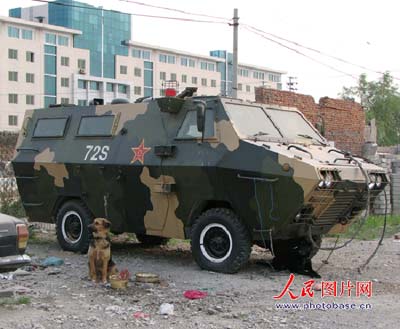
Since taking the chief secretary's post in July 2005, Mr Hui has rarely been interviewed. Sources said that under arrangements for his interview with the students, the content had to be released by the government first. The students could then publish an article on Mr Hui's comments. This has led to claims that the administration has been trying to manipulate the interview. Leung Tin-wai, head of the journalism and communications department at Shue Yan University, said the interview was finalised early this month, and the questions were prepared by himself and students. Serenade Woo Lai-wan, who chairs the Hong Kong Journalists Association, said the arrangement for the interview reflected that the government wanted to deliver what it wanted.
The Chinese-language Hong Kong bloggers have some thoughts about that choice:
這不是寵幸,這是另一次就範 香港仔公國
這不是訪問,這是一次寵幸 聞.見.思.錄
肥龍之詭道 都是那些日子
很好的一課 頑石記
The fact is that when Rafael Hui leaves office, he can choose to give an interview or not. If he chooses to give an interview, he can do it with
(1) mainland Chinese media;
(2) overseas media;
(3a) Hong Kong 'opposition' media such as Apple Daily;
(3b) Hong Kong 'friendly' media such as ATV or Sing Tao;
(3c) Hong Kong non-mainstream media such as university journalism students.
So the (off-message) debate is about whether Rafael Hui was trying to manipulate some inexperienced student journalists and make a dictation without being subjected to any challenge. Really? Self-censorship occurs everyday at the mainstream media inside and outside of Hong Kong. In the real estate, finance, entertainment and consumer sections, the reports need to consider whether important people might be offended. That is a fact of life around the newsroom. So is it so shocking that politics is involved in this game too? The frontline reporters never get full control over what gets published ultimately.
The fact is that if any of the listed parties was selected by Rafael Hui, there will be some sort of post-interview debate over the choice. Why? Because he is known as the control freak who is only sparingly interviewed. But the Duke of Aberdeen blogger wondered:
Naturally, Rafael Hui made all these considerations for the purpose of obtaining the best media effect. To use a piece of officialese, he wanted "everything under control." Did he succeed? Or did he achieve the opposite? Did he consider that delivering the message in this manner might achieve the exact opposite? Maybe he has even totally lost the bad enough already media relationships? Rafael might have thought, "I'm leaving and I don't have to worry about you reporters anymore. I don't care what you reporters think of me. But I'm going to teach the pan-democrats a lesson before I leave."
When officials are promoted to the highest level of government (the so-called rule of Hong Kong by the Administrative Officers), they are often criticized for being maladroit at media public relations. It seemed merely to be a problem of bad public relations, and that is how the so-called political cosmeticians came along.
But the problem is not about the art of cosmetics. The real problem is the fact that the true faces of the domineering officials are incomparably ugly to the point where the best policy is for them to see nobody and say nothing. When they are too ugly, they go too far with the cosmetics or interviewing arrangments and that is how they get into trouble instead. When will they understand this?
The reality is that nobody is discussing the contents of the Rafael Hui interview. Everybody is buzzing about the choice of the interviewers.
Actress Cameron Diaz has issued an apology for travelling around Peru with a bag that had the words 'Serve the People!' printed on it. The slogan was communist icon Mao Zedong's most famous, and was in Chinese language.
Contactmusic.com quoted Thor Halvorssen, president of the Human Rights Foundation, as saying: 'It is bad enough that Diaz wears a bag quoting history's most prolific butcher, but what's even worse is that she is of Cuban heritage and really should know something about the true history of communism. There is a double standard here that boggles the mind: Had she worn a bag quoting Himmler or Pinochet, she would likely face career annihilation, and rightly so.'
The bag is considered fashionable in New York. But in Peru it is reminiscent of the Shining Path group whose armed campaign left almost 70,000 people dead.
Diaz said in a statement: 'I sincerely apologize to anyone I may have inadvertently offended. The bag was a purchase I made as a tourist in China, and I did not realize the potentially hurtful nature of the slogan printed on it.'
From Wikipedia:
A Truth and Reconciliation Commission (CVR), established by interim President Valentín Paniagua, found in a 2003 report that 69,280 people had died or disappeared – 22,507 fully identified as dead and 46,773 disappearances. Shining Path was estimated to be responsible for the death of 31,331 people. According to a summary of the report by Human Rights Watch, "Shining Path… killed about half the victims, and roughly one-third died at the hands of government security forces… The commission attributed some of the other slayings to a smaller guerrilla group and local militias. The rest remain unattributed."
...
We start by not ascribing to either Universal Declaration of Human Rights or the Costa Rica [Convention on Human Rights], but we have used their legal devices to unmask and denounce the old Peruvian state. . . . For us, human rights are contradictory to the rights of the people, because we base rights in man as a social product, not man as an abstract with innate rights. "Human rights" don't exist except for the bourgeoisie man, a position that was at the forefront of feudalism, like liberty, equality, and fraternity were advanced for the bourgeoisie of the past. But today, since the appearance of the proletariat as an organized class in the Communist Party, with the experience of triumphant revolutions, with the construction of socialism, new democracy and the dictatorship of the proletariat, it has been proven that human rights serve the oppressor class and the exploiters who run the imperialist and landowner-bureaucratic states. Bourgeois states in general. . . . Our position is very clear. We reject and condemn human rights because they are bourgeois, reactionary, counterrevolutionary rights, and are today a weapon of revisionists and imperialists, principally Yankee imperialists.
To what degree should the Chinese Communists be blamed for the excesses of the Shining Path (and this has nothing to with Cameron Diaz's handbag)? Well, the answer depends on which Chinese Communists do you mean? All Chinese Communists are not alike.
On one hand, they have plenty to do with it because the leader of Shining Path had plenty of contact with the Chinese Communists (see Al Jazeera):
The leader of the Shining Path was Abimail Guzman, a former philosophy professor and a devotee of Mao who visited China many times during the Cultural Revolution. ... Guzman became an adherent of the Gang of Four - the group of senior Chinese Communist Party figures, including Mao's wife, Jiang Qing, who advocated a fundamentalist brand of Maoism and were later blamed for many of the excesses of that period. ... In an interview with the Path's El-Diario newspaper in 1988, Guzman described how he was taught in China not only to build a political party, but also to carry out "ambushes, attacks, military movements, as well as how to assemble explosive devices". "For me it is an unforgettable example and experience, an important lesson, and a big step in my development - to have been trained in the highest school of Marxism the world has ever seen," he said of his time there.
On the other hand, they have nothing to do with it because President Gonzalo (=Abimail Guzman) hated them. This was how the Shinining Path introduced themselves to the Peruvian people in 1980 (Global Security).
Most Peruvians first heard of Sendero Luminoso when the citizens of Lima were confronted by the sight of dead dogs hanging from utility poles along the principal boulevard of the city. The carcasses were decorated with placards denouncing the "fascist dog of Deng Xiaoping" and praising the Chinese Gang of Four.
Related Link: No light, no law. Anthony Daniels, 11/5/1990, National Review.
While the mainland official media are giving blanket coverage on the incorporation of Hong Kong into the mainland ten years after its return, Southern Weekend (a member of the Southern Daily group that has been hailed as the leader in the reform of newspapers in China) has used an indirect and opaque method to break through the mainland public opinion taboo in order to showcase certain local Hong Kong features. It described the activities of the FLG in Hong Kong, it referred indirectly to the June 4th candlelight assembly in Victoria Park, it hinted that even though the "Hong Kong dream" may have evaporated under the shadow of government-business collusion, but it said that the Hong Kong's people prides -- the freedom of speech, political tolerance and the spirit of the rule of law -- continue to exist.
... In the latest issue of Southern Weekend, there is an article titled <The Hong Kong that you may not know: The rules are stronger than the hidden rules>. The article introduces "the aspects of Hong Kong that mainlanders may not know about." The article opens with a description of the FLG which has been defined as an evil cult on the mainland: "You step out of the Hung Hom train station and you will be greeted by a mass of banners. This is enough to scare a mainlander coming to Hong Kong for the first time. At Star Ferry, someone will distribute flyers and booklets to you. In Hong Kong, you can see these dissidents everywhere but you rarely see them in the mainland." The article does not spell out that these dissidents are FLG members. But any mainlander who has been to Hong Kong will know what this means.
Concerning the annual assembly on June 4th, the article says: "On the first Monday of June ... when you step out of the MTR station in Causeway Bay, there are Legislators using their microphones to push their ideals. Various political parties or social organizations are soliciting donations enthusiastically." Although the article only describes the atmosphere without being specific, the date, the location and the Legislators speaking via microphones clearly point to the June 4th candlelight assembly.
The mainland official media are praising the high degree of economic autonomy and the continued economic development of Hong Kong. But Southern Weekend cites Hong Kong cultural critic Leung Man-tao to say that the "Hong Kong dream" in which it is possible to succeed through effort alone may have gone away for good: "Nowadays, even taxi drivers curse out Li Ka-shing for being a bastard who is into monopolization and government-business collusion. In the past, the people of Hong Kong feel that rich people relied on themselves. Now, they are beginning to hate the rich people."
On June 26, the Chinese version of World of Warcraft has been updated to the "Before the Storm" edition. This version had been running in the United States and Europe for one year already, and it took that long for the Chinese version to appear.
However, Chinese WoW players were outraged by certain changes in the game as a result of the updates. In the old version, the dead souls were turned into skeletons. In the new version, the dead souls have flesh and body (see photograph below for comparison of the same character).
In the old version, the dead were strewn around as skeletons. In the new version, the dead are represented by graves with headstones.
The reporter interviewed the Chinese operator of WoW and received the 'official' response: "The revision of the images of the dead souls is based upon the situation and policy requirements in China. These small changes were made to promote a healthy and harmonious Internet gaming environment. It should not detract from the users' enjoyment of the game." As for specific questions (such as the skeletons), the person said that it was hard to respond (and "the reporter should appreciate that").
Some users think that this one-sided interpretation of "harmony" by the relevant government departments led to actions that resulted in a huge reaction that was even worse for the sake of "harmony." In one public opinion poll with more than 20,000 votes, more than 90% of the users opposed the revision strongly.
How not to build democracy? The election of village officials at Daxingzhuang village, Songzhuang town, Tongzhou district, Beijing city has given us some clues. A week before the election, there came the phenomenon of open sales of voter cards ... According to the villagers, the price for voter cards "rose like a stock share with several changes a day." The highest offer is now 600 yuan ...
Some might say that this mutually acceptable arrangement "maximizes" the interest on both sides. The villagers selling their votes are interested in cashing in immediately while the candidates buying the votes are making a long-term investment. Yet, anyone with any knowledge of democracy will know that this type of activity will place the entire society into greater jeopardy. Democratic rights are political rights that can be neither deprived nor transferred. When the voter card becomes a stock share that can be bought and sold at will, then democratic politics become a black market that is controlled by the vote buyers ...
We also note another small detail. Compared to the trading of voter cards, even worse are the village cadres "confiscating voter cards for no apparent reason." Faced with these kinds of daylight robberies, some villagers have resisted by writing messages on their doors with chalk: "If you want to take away my voter card, you must pay 600 yuan. This is not negotiable." Maybe this is the most basic as well as most hapless "transaction between power and money." But here, the money is only a small favor but the power is the "civil right."
Why are villagers so willing to sell their voter cards in their hands? Some people find it easy to offer the "reason that everybody knows about" -- the peasants "are greedy for the small sum of money" and are "short-sighted." ... If we dig deeper, we will discover that this so-called "reason" is actually the consequence of another reason -- in our world, the voters do not see any advantage worth more than 600 yuan from "democracy." In other words, the real problem that we have to confront is that "democracy is not worth 600 yuan."
When the legal system is non-existent, democracy is meaningless. When village officials can walk into a villager's home and take their voter card, the villagers lose faith in democracy. The villagers figure that even if they don't sell their votes, other voters will. In this game-theoretic contest, it is the wealthy vote-buyers who get the last laugh.
... Since democracy has become a trading activity with the wealth people and since the voters regard their ballots as waste paper, then 600 yuan is a good price. In that sense, there is an inner logic for the villagers to make the 'short-sighted' choice of selling their votes ...
How do you stop this? The first thing is to make the villagers believe in democracy. If the voters think that their votes have nothing to do with their lives and the act of voting is a pointless participatory act, then there is no hope for democratic elections. Even if we can find some way of convincing the voters not to sell their votes, we may encounter the embarrassing situation in which nobody shows up to cast their votes.
With the confirmation that this was a rumor, certain web portals began to delete the posts that carried the rumor. But the deletion of the posts created greater netizen anger and the criticisms became more vehement. The Tengzhou publicity department organized people to make large number of posts to clarify, but their voices were quickly drowned out.
"There was nothing that we could do now. We are too small compared to the hundreds of millions of netizens out there," said an official with the Tengzhou city publicity department.
In the case 5-1/2 years ago in which Ma Chiu-sing threatened to poison supermarket foods, it was believed that this was an extreme action that he took in order to express his dissatisfaction with Chief Executive Tung Chee-hwa. But his background did not contain any indication of extremism. When he graduated from high school, he joined the Department of Corrections and then left for no reason. He learned hair-dressing from his elder brother and joined the auxiliary police. In 1992, he started his own hair salon. He was involved in real estate speculation like many of his fellow citizens. It is doubtful whether he committed the crime for political extremism.
The fact that Ma Chiu-shing joined the Department of Corrections and the auxiliary police shows that he has an interest in the discipilinary forces, but it was hard to understand why he left those forces. During the past two decades, he kept switching jogs and this has to make people wonder if he has some other identity.
According to information, the Political Department of the Hong Kong Royal Police during the British colonial administration had many special agents burrowed in various social strata in Hong Kong. These people are responsible for collecting information and carrying out special missions. Furthermore, Beijing, Taiwan and even western countries also planted large number of special agents in Hong Kong. Superficially, these agents looked just like other citizens. After the return of Hong Kong to China, some of these people went into retirement but some are still conducting underground activities on behalf of various political forces and they will carry out sabotage following orders at various times.
In reality, some people speculated that Ma Chiu-sing and even the infamous "devil policeman" Tsui Poko may not be those types of people. But these speculations can neither be confirmed nor denied ...
Some time within the next month or so the government will issue a report outlining three general options for bringing full democracy to Hong Kong. Tsang has made 60% public support the target for any measure that he will push forward. But Hong Kong's desire for full democracy is strong, and it is likely that more than one proposal will surpass the 60% barrier. He admitted as much in a recent interview. Earlier this week a poll by Hong Kong University indicated that 57% of the population supports a proposal by the pan-democrats on choosing the next Chief Executive. Tsang will be forced to choose which plan he backs from several equally popular proposals. The task of explaining why one is better than the other will not be easy. And the stakes are high. Tsang, in a notably poor choice of words, said he would find a "final solution" for bringing full democracy to Hong Kong. Whether he can match that pledge or not will be the performance review that really matters.
Now I have not cited that HKU POP poll because it is so weird in terms of the questions. I thought that it was going to create more problems than not if I cited it. But now that the survey has been cited, it is probably necessary to address it. So here are the exact survey questions and the corresponding results:
Q1. Regarding the Chief Executive election in 2012, it is proposed that 400 directly elected district councillors should be added to the existing 800-member Election Committee, adding up to a total of approximately 1,200 committee members. The number of subscribers required should be 50% regardless of the sector they belong to. The Chief Executive should ultimately be elected by universal suffrage. Do you support or oppose this proposal?
Support: 57%
Half-half: 17%
Oppose: 14%
Don't know/hard to say: 13%Q2. Regarding the Legislative Council election in 2012, it is proposed that a mixed election model would be adopted, whereby half of the seats would be returned by a "single seat single vote" simple majority system. The other half of the seats would be returned through elections by the "proportional representation system" so that each voter can cast two votes. Do you support or oppose this proposal?
Support: 45%
Half-half: 18%
Oppose: 15%
Don't know/hard to say: 22%Q4. It is proposed that a sort of prior vetting mechanism would be added to the Chief Executive election to secure the acceptance of candidates by the Central government. Then the Chief Executive would be elected by the public on a "one-person-one-vote" basis. Do you support or oppose to this kind of prior vetting mechanism?
Support: 45%
Half-half: 18%
Oppose: 25%
Don't know/hard to say: 11%Q5. There is another proposal that a prior communication channel would be added to the Chief Executive election, instead of a prior vetting mechanism. That means those who would like to stand for the Chief Executive election had to communicate with the Central government first through this sort of channel before they could turn to be candidates, lest the Chief Executive selected by the public would gain no acceptance from the Central government. Do you support or oppose to the setting up of this sort of prior communication channel?
Support: 52%
Half-half: 14%
Oppose: 25%
Don't know/hard to say: 9%On Q1, I personally got thoroughly confused because a number of different issues were brought up in a package. I will say that I cannot reduce to this survey question to just: "The Chief Executive should ultimately be elected by universal suffrage" which has a 57% support level. For example, if I am completely for 100% direct election of the Chief Executive, why should I be kidnapped to support the addition of 400 district councilors into the Election Committee? I don't even want any stinking Election Committee -- I want a direct election! Get it!!!???
On top of this, I have to add the nuances introduced in Q4 an Q5. Those responses just do not match my understanding of free and open universal suffrage -- the people of Hong Kong are apparently willing to accept interference from the central government about their choice for the Chief Executive! However, I am not accepting this as truth because I need more evidence besides a very complicated and convoluted survey questionnaire.
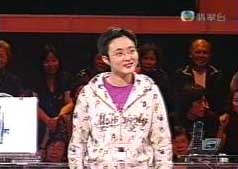

Q1. Hong Kong has been under "One County, Two Systems" for ten years. Overall, do you feel that the people of Hong Kong are better, worse or the same compared to before the return? (Base: Taiwan residents)
Better: 17% (compared to 5% in TVBS survey conducted in June 1997)
The same: 34% (compared to 54% in June 1997)
Worse: 16% (compared to 33% in June 1997)
Don't know: 33% (compared to 8% in June 1997)Q2. Overall, do you think that the economic development of Hong Kong now is better, worse or the same compared to before the return? (Base: Taiwan residents)
Better: 32% (compared to 12% in June 1997)
The same: 31% (compared to 51% in June 1997)
Worse: 17% (compared to 29% in June 1997)
Don't know: 21% (compared to 8% in June 1997)Q3. Overall, do you think the development of democracy in Hong Kong now is better, worse or the same compared to before the return? (Base: Taiwan residents)
Better: 10%
The same: 40%
Worse: 30%
Don't know: 20%Q4. Ten years after the return, do you think that "One Country, Two Systems" has been successfully implemented in Hong Kong? (Base: Taiwan residents)
Very successful: 4%
Somewhat successful: 34%
More or less okay: 9%
Somewhat unsuccessful: 13%
Very unsuccessful: 10%
Hard to say: 31%Q5. Under "One Country, Two Systems," how confident are you about the future economic development of Hong Kong?
Hong Kong residents:
Very confident: 17%
Somewhat confident: 51%
Fair: 18%
Somewhat not confident: 8%
Very not confident: 3%
Don't know: 3%Taiwan residents:
Very confident: 9%
Somewhat confident: 32%
Fair: 9%
Somewhat not confident: 13%
Very not confident: 5%
Don't know: 32%Q6. Under "One Country, Two Systems," how confident are you about the future development of democracy in Hong Kong?
Hong Kong residents:
Very confident: 8%
Somewhat confident: 37%
Fair: 24%
Somewhat not confident: 18%
Very not confident: 7%
Don't know: 6%Taiwan residents:
Very confident: 5%
Somewhat confident: 27%
Fair: 7%
Somewhat not confident: 21%
Very not confident: 16%
Don't know: 24%Q7. Overall, do you think "One Country, Two Systems" is suitable for Taiwan?
Hong Kong residents:
Suitable: 52%
Not suitable: 33%
Don't know: 15%Taiwan residents:
Suitable: 21%
Not suitable: 53%
Don't know: 26%Q8. Do you agree with setting up a "One Country, Two Systems" relationship between Taiwan and mainland China (that is, according to the Hong Kong model)? (Base: Taiwan residents)
Agree: 23% (compared to 36% in June 1997)
Disagree: 55% (compared to 54% in June 1997)
Don't know: 21% (compared to 10% in June 1997)Q9. If there is a choice, would you rather Hong Kong be a British colony or a Special Administrative Region of China?
Hong Kong residents:
British colony: 31%
China SAR: 41%
Don't know: 28%Taiwan residents:
British colony: 38%
China SAR: 36%
Don't know: 26%Q10. Overall, how do you feel about the mainland Chinese government?
Hong Kong residents:
Very good: 7%
Somewhat good: 37%
So-so: 43%
Somewhat bad: 9%
Very bad: 3%
No opinion: 1%Taiwan residents:
Very good: 2%
Somewhat good: 9%
So-so: 20%
Somewhat bad: 23%
Very bad: 28%
No opinion: 17%Q11. Overall, how do you feel about the Hong Kong SAR government?
Hong Kong residents:
Very good: 7%
Somewhat good: 46%
So-so: 40%
Somewhat bad: 5%
Very bad: 1%
No opinion: 1%Taiwan residents:
Very good: 2%
Somewhat good: 22%
So-so: 16%
Somewhat bad: 14%
Very bad: 8%
No opinion: 38%Q12. Overall, how do you feel about the Taiwan government?
Hong Kong residents:
Very good: 1%
Somewhat good: 4%
So-so: 28%
Somewhat bad: 38%
Very bad: 21%
No opinion: 8%Taiwan residents:
Very good: 8%
Somewhat good: 13%
So-so: 17%
Somewhat bad: 19%
Very bad: 31%
No opinion: 11%Q13. Self-identity of the people of Taiwan over time. [Explanation: The green line is for "Taiwanese"; the dark blue line is for "Taiwanese and Chinese"; the purple line is for "Chinese." The dates (YY/MM/DD) in the series are counted from the founding year of the Republic of China (1911). For example, 96/6/15 is June 15, 2007.]
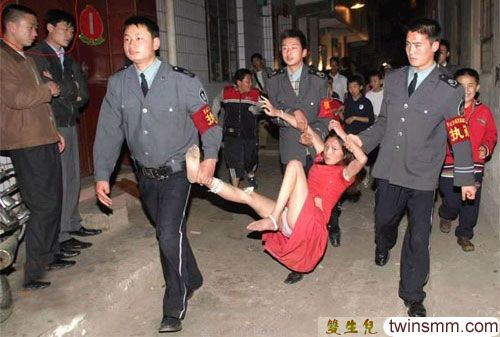
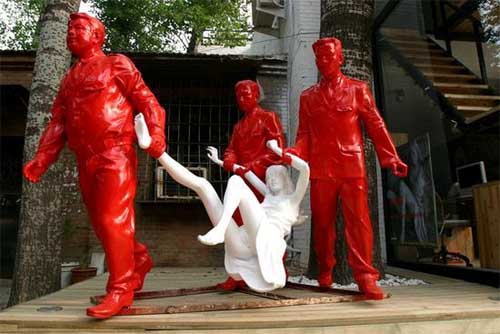
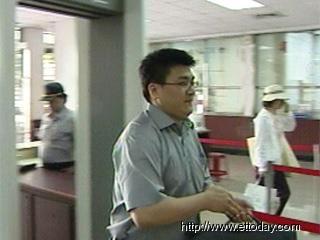
I have the habit that no matter where I go, I will try to chat with the local young people in order to understand the local mores and make friends.
I have met some students from Taiwan here. When I speak to them, many people are polite but there seems to be an invisible barrier like the Taiwan strait. Finally, there was an open clash after which I seem to understand the source of that estrangement.
On that day, I came across some Taiwan students at the student cafeteria. One of them is the a classmate in the reading class. She always wears to smile and speaks lightly. I asked her what she thought about the diplomatic wars across the strait. She said that China is too big for Taiwan to fight. From a practical viewpoint, I agree with Ma Ying-jeou's idea that Taiwan can have more international space by negotiating with China. But how come Taiwan can only join the WTO and the Olympics but nothing else? This is no doubt the disastrous result of the DPP's "flames of war everywhere" diplomatic approach.
France had just held its election, and I said that I wanted to go and observe the 2008 and 2012 election in Taiwan. I joked that if the DPP were to win again and continue down the present path, it is hard to say whether there will be war or peace in 2012.
"War? You get lost!" A woman on the right hand side screamed at me. "Why are you sitting next to me? We are all Taiwanese people here and you are the only Chinese," she continued.
"Where do you think you are? This is a university student cafeteria in France. Besides, was I talking to you before?" I told her. She had nothing to say and eventually left.
Are young people in Taiwan unwilling to sit down and discuss these problems with mainland people of the same age, just as the media said? I think most of them are not like that. If we won't think about the future across the strait and the future of Taiwan, who will?
Since the political systems and the social developments are different, many mainland Chinese young people admire the freedom of speech and freedom of press in Taiwan. But if the result of these freedoms is bigotry, isolation and intolerance, then it is hard to say whether this is the failure of democracy or personal failure.
Baed upon my previous professional experience, the mainland media carry much more coverage about the world than the media in Taiwan. This made people think about the large issues of society and create a more open attitude. This is basically not the image of mainland China that the Taiwanese people get from their own media. We are willing to understand Taiwan, so why shouldn't the young people of Taiwan be willing to understand the mainland?
Blood and tears are flowing from the case of Shanxi brick kiln slaves. Among the confusing information, I read the following item: the wife of the kiln owner said that "they knew nothing about the lives of the kiln workers" and "they were deceived by the subcontractor." (as reported in the <Yanzhao Metro News>)/
The person who said those words is the wife of the brick kiln owner Wang Bingbing, who is the son of the party secretary in Caosheng village, Guangshengsi town, Hongdong county, Shanxi province.
In this photograph, Wang Bingbing's wife certainly looks infinitely better than those kiln slaves ... According to her logic, everyone in the chain of logic may be innocent. The kiln owner, the subcontractor and even those henchmen who killed or crippled the kiln slaves have their excuses. The officials at the various local government levels are also innocent and have no responsibilities whatsoever.
Let us suppose that the daughter-in-law of the senior cadre in Caosheng village knew nothing. But she must have seemed the tragic sight of the kiln slaves in the media (newspapers and television). If such is the case, how could she remain so calm as to show no trace of emotion? Even more shocking than the conditions of the kiln slaves is the calm expression of the daughter-in-law of the senior cadre in Caosheng village.
With respect to the case of the kiln slaves, public opinion is directed towards the local government officials and the problems with the system in general. The kiln slaves revealed a severe wound in the economic rise of the nation, as lauded as "China Rising" by TIME magazine ...
Perhaps we can only blame this on the price that has to be paid during the process of modernization. But this price is too heavy. None of us can make this kind of disaster disappear immediately. We can only pray that it will be less -- a lot less
... Over the past several days, something has been going through my mind ... I made a hypothesis: Suppose I was born in Caosheng village (Shanxi province) and my father was the village party secretary. Could I become a kiln owner? Would my wife calmly and shamelessly stand in front of the public and present the worst aspects of human nature?
I am not sure. I am really not sure ...
According to the police, at around 11:30pm last night, the police set up a temporary inspection post in Taipei city. They observed a male with a handbag who attempted to elude the police. When the police officers moved towards the male, he tossed his handbag and fled. The police gave pursuit and the man took out a gun and fired seven shots. The police called for reinforcement and had the man cornered in a parking lot. As the police approached, the man fired several shots while the police returned fire. When the man saw that he could not possibly escape, he shot himself in the temple. The police checked the identification on his person and confrimed that it was Lan Chia-wei, who is the alleged assassin of Taipei county councilor Wu Shan-chiu. The handbag that was discarded contained a large amount of cash.
Of course, conspiracy theorists will always wonder whether this was the right person or a dupe. Here are the photographs -- the suspect as captured on closed circuit television is shown on the left and the ID photo of the suspect is shown on the right. It is the same person, right? Or are you a conspiracy theorist?
哈中反中不如知中 (It is better to know China instead of just loving or hating it).In direct contrast to German philosophy which descends from heaven to earth, here we ascend from earth to heaven. That is to say, we do not set out from what men say, imagine, conceive, nor from men as narrated, thought of, imagined, conceived, in order to arrive at men in the flesh. We set out from real, active men, and on the basis of their real life-process we demonstrate the development of the ideological reflexes and echoes of this life-process. The phantoms formed in the human brain are also, necessarily, sublimates of their material life-process, which is empirically verifiable and bound to material premises. Morality, religion, metaphysics, all the rest of ideology and their corresponding forms of consciousness, thus no longer retain the semblance of independence. They have no history, no development; but men, developing their material production and their material intercourse, alter, along with this their real existence, their thinking and the products of their thinking. Life is not determined by consciousness, but consciousness by life. In the first method of approach the starting-point is consciousness taken as the living individual; in the second method, which conforms to real life, it is the real living individuals themselves, and consciousness is considered solely as their consciousness.
One way to think about this is that the Hong Kong citizen's understanding of China cannot be imposed from the outside through 'civic lessons.' Instead, their understanding depends on their interaction with mainland China and its people. To borrow the slogan from the famous Hong Kong blog on Japan,
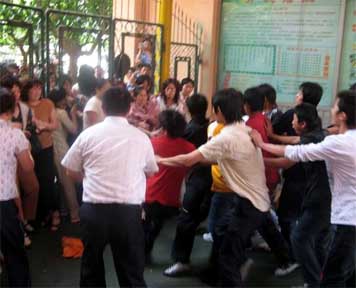
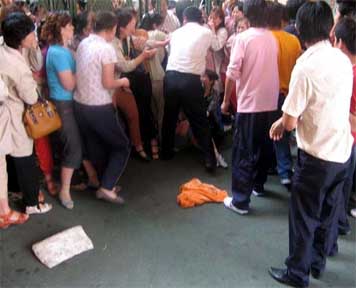
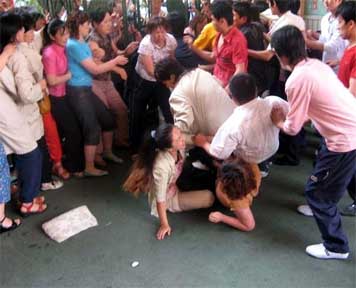
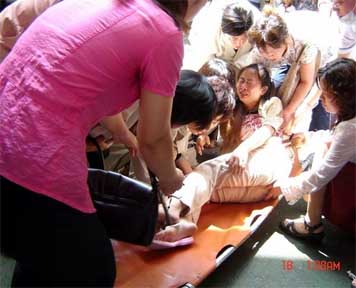
The inclusion of the only patriotic loyalist in the new ruling team, Central Policy Unit adviser Tsang Tak-sing - a former journalist - will ensure greater integration with the mainland and cross-border cooperation. But his main job will be to push ahead the social enterprises pledged by Tsang during his election campaign.
There is much more in the Chinese-language newspapers about Tsang Tak-sing's history. The following episode is most frequently mentioned (see Apple Daily, for example):
Tsang Tak-sing was a student at the English-language high school St. Paul's College. On September 28, 1967, Tsang distributed 375 inflammatory flyers that basically said: "The British colonial administration in Hong Kong has oppressed our compatriots politically; they will not allow us to love our country; they used brutal methods to effect fascist suppression of our patriotic compatriots; they also implement an educational system that turns out slaves." The police received a report and entered the school campus to investigate. They took Tsang Tak-sing down to the police station.
"At the time, he was distributing the prefect's armband when he distributed the flyers. A student saw him and reported to the priest. The priest called the police. Many students witnessed his arrest," said a St. Paul's alumnus. According to this source, 18-year-old Tsang Tak-sing was taken back to the police station where he could have released if he would sign a document to say that he was sorry. Tsang refused and he was physically assaulted by the police and subsequently charged.
... About a couple of weeks later, Tsang Tak-sing was charged in court. The prosecutor read out the charges and Tsang pleaded not guilty. The judge found Tsang guilty and sentenced him to two years in imprison. Tsang's father attended the court and the judge asked him if he wanted to say anything. Tsang's father only said: "My son did the right thing." In the verdict, the judge wrote that Tsang was being stupid. As a student with an excellent academic record and ready to enter university, he has just destroyed his own career and he had no one else to blame.
The Apple Daily provided some background context about the 1967 leftist riots in which there were strikes, demonstrations, riots and "pineapples" (improvised explosive devices) that led to 51 deaths and more than 800 injuries (many of whom were innocent citizens). But that is the background. Was Tsang Tak-sing thrown in jail for two years because of his personal action, or for the background?
老左正傳 might be translated as: "The Life of an Old Leftist" and its former English-language title was "Call Me Left." For the movie review, read lovehkfilm.com. Here is the bottom line:"Mr. Cinema", a Hong Kong film starring Anthony Wong, Karen Mok, Teresa Mo and Ronald Cheng, will debut in late June. The film aims to reflect the persevering spirit of the Hong Kong people by telling the story of a Hong Kong projectionist's family over a 40-year period from 1967 to 2007. Veteran actor Anthony Wong plays the part of the projectionist, Teresa Mo and Ronald Cheng his wife and son, and Karen Mok as Ronald Cheng's girlfriend.
This is very misleading because this film was not about a typical Hong Kong citizen. The original Chinese-language title
Basically, if you're looking for political and historical accountability, then Mr. Cinema will absolutely disappoint, and could even be viewed as irresponsible filmmaking. However, if you're just looking for something that's touching, bittersweet, and feels uniquely Hong Kong, then Mr. Cinema is a quality time at the movies.
Is it too much to say that a movie is 'irresponsible' with respect to 'political and historical accountability'? That is because it is impossible to discuss the evolution of a Hong Kong leftist without certain landmark events and one of these (and arguably the most significant contemporary one) was omitted. More from lovehkfilm.com.
Mr. Cinema is very guilty of something that we'll call "selective history". Generally, the film portrays history accurately, using it as a way to define its characters and their growth. However, one event that greatly affected Hong Kong goes suspiciously unmentioned: the Tiananmen Square Massacre of 1989. The reason for the omission is obvious; after all, this is a film meant to celebrate the Hong Kong-China reunion, and nearly twenty years later Tiananmen Square is still a touchy subject in the Mainland. The censors can breathe easy; in Mr. Cinema, the event is ignored, and judging by character reaction, may never have taken place at all. That's a bit of a problem. Given Zhou's ardent desire to visit Tiananmen, and the film's running joke of how he never finds the chance to visit, the omission comes off as a disservice. Frankly, to gain a complete portrait of Zhou Heung-Kong and his family, Tiananmen Square needs to be there. We're getting a deliberately watered down history in Mr. Cinema; the Hong Kong on display is more than just rose-colored - it may be willingly blind.
The significance of Tiananmen Square for the Hong Kong leftists can be shown in terms of what the movie showed. For a long time, whenever major events occurred in China (e.g. the fall of the Gang of Four, etc), the leftists met and were debriefed by their leaders (e.g. Xinhua people who directed the underground party) about the correct line. With respect to Tiananmen Square, even those leaders were marching in Hong Kong themselves.
He came from Hengying village, Xizhou county, Henan province. The village was an ordinary one in which the families owned farming cattle. Heng Tinghan was the first one to come up with the idea of buying and selling farming cattle. He was in charge of the sales activities while his younger brother was the enforcer who collected bad debts.
At some time after 1995, the cattle business was in decline. So Heng Tinghan looked instead to the labor subcontracting business at the Shanxi brick kilns. He began to con local Henen workers to go work in Shanxi. He told the villagers that he had powerful connections in Shanxi where labor subcontracting is a hugely profitable busienss. He promised to help other villagers to become subcontractors. This was how it came to be that most illegal brick kilns owners and subcontractors in Shanxi hailed from Xizhou county (Henan province).
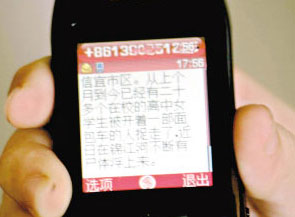
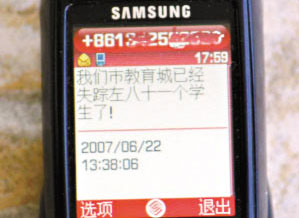
Late night on January 29, 2007, Shanxi Datong city Public Security Bureau Traffic Police Squad southern suburban team assistant instructor Song Jianzhong killed city Public Security Bureau Political Department director Li Huimin at home. Afterwards, the streets were filled with the rumor that Song committed the murder because he paid money to buy a government position but never got any result. Today, the rumor has been confirmed: The Shanxi provincial Procuratorate said that an important reason why Song Jianzhong killed Li Huimin was that Li took 180,000 yuan in bribes from Song but failed to keep the promise to promote Song (see Southern Metropolis Daily, June 22).
Spending money to buy government positions is nothing new. Having a dispute over the failure to get a position after payment is nothing new either. But the loss of a life might be new. Even so, I 'm really not particularly interested in that. But I think that if Song Jianzhong spent 180,000 yuan for a minor position and still failed, then would you think that nobody else has bought their government positions? No way. Now that Li Huimin has been killed for selling government positions, then do you think that nobody else will do that? No way.
But I am still very interested in this story. The reason for my interest is that this story tells me: "After the murder, the streets were filled the rumor that Song committed the murder because he paid money to buy a government position but never got any result. Today, the rumor has been confirmed." But if we look at the initial reports about this case, you should learn that there are actually other rumors associated with this case.
For example, on January 31, <Chongqing Evening News> cited the description in Xinhua and <Democracy and Legal System Times>: A Datong public security bureau militia police officer told this reporter: "The Political Department inside the Public Security Bureau is a crucial department in charge of the promotions/demotions, hiring and transfers of the militia police. Ever since Li Huimin became director, personnel decisions were based 'solely upon money.' People who should be demoted are not demoted; people who should be promoted are not promoted. There were strong feelings among the militia police. The large number of vicious crimes in Datong is largely related to the mismanagement of police personnel."
So I have to think: If the first rumor has been confirmed, then is this other rumor also true? Shouldn't the relevant department investigate whether other people in the Datong Public Security Bureau also bought their positions from Li Huimin? Of course, it would be even better if they can investigate just how Li Huimin dared to sell positions!
... On April 27, Henan youth Zhu Guanghui was rescued from an illegal brick kiln in Yongji city. On his way home, he was pulled off a bus by an inspector at the Yongji city Department of Labor Supervision and then presented to work at a different illegal brick kiln. The inspector even charged Zhu Guanghui 300 yuan as commission. At the end of May, Zhu Guanghui went with the Henan TV Metro Channel reporter to confront this inspector at the Yongji city Department of Labor Supervision. The camera recorded this very embarrassed inspector named Feng attempting to return the 300 yuan to the boy.
On that afternoon, Zhu Guanghui went out to photocopy materials for other Henan parents looking for their children but he never came back. His own father arrived in Yongji later that day, but never got to see his own son.
After this news was published, the fate of Zhu Guanghui drew a great deal of public attention. Where was he? It was very worrisome. On the evening of June 18, Zhu Guanghui finally made it back to his home in Pingdingshan (Henan). He was interviewed by the Southern Weekend reporter via telephone.
According to Zhu Guanghui, he went to get photocopies that afternoon. On the way, he encountered the inspector named Feng again. Feng was driving a car. He offered Zhu more money in compensation and tricked him to get omyp the car. Then he drove the car directly to another brick kiln in Yuncheng city. Zhu Guangji recalled that a local street sign had said "Yanhu district."
One week later, during the large-scale clean-up of illegal brick kilns across all of Shanxi province, Zhu Guanghui was liberated for one more time. He was taken by the Yuncheng public security bureau officers to the Criminal Investigation Squad in Yongji city. There, Zhu Guanghui saw inspector Feng (a man with glasses and way hair) in handcuffs. "He warned me not to talk to reporters," said Zhu Guanghui.
As of now, the Shanxi police have done an outstanding shop in cleaning up the illegal brick kilns and saving trapped migrant workers. Several hundred migrants workers have been freed and Zhu Guanghui was one of them. He has received a total of 1,500 yuan in compensation from the central government and the local Department of Labor Supervision.
But Zhu Guanghui could not hide his hatred for that inspector. "Why did he sell me away twice?" Zhu Guanghui said that this inspector has been reclaimed by the Department of Labor Supervision. He said that he did not resist during the process "because he did not dare resist."
On the evening of June 19, the Southern Weekend reporter called Yongji city Department of Labor Supervision party secretary Zhang. He categorically denied that Zhu Guanghui had been sold and that there was no inspector by the name of Feng. When the reporter told him that there was a television video, he said: "But that was only in profile (and not from the front)." He emphasized that Zhu Guanghui is already 16 years old "and therefore not a child laborer." Then he promptly hung up the telephone and cut off any follow-up questions from the reporter.
On June 11, Mr. Qiao of Hunan called the China Telecom helpline about his problem with Internet access on his newly re-installed computer. He was informed that he had to proceed to Vnet.cn to download the latest software.
Mr. Qiao went to Vnet.cn and saw that there was a link to "Adult Movie Studio" from the log-in page. When he clicked on the link, he was taken to a page with large quantities of obscene, indecent, violent and pirated movies (which can be accessed for 30 yuan).
China Telecom is supposedly to be developing a "Green Movement" to promote the rejection of harmful contents such as pornography and violence. Mr. Qiao's public complaint points out that China Telecom is a hypocrite. In addition, if the Ministry of Public Security is going after pornographic websites, then what about the biggest one of them all?
According to a person with the Hunan office of China Telecom, "Vnet.cn is a service content provider, whereas China Telecom is a platform. The content provider places the service contents onto the platform. China Telecom only takes care of the technical implementation. The contents are reviewed by the relevant government departments and China Telecom only provides assistance."
Is China Telecom's argument acceptable? If you think that it is, then why can't all the Chinese BBS forums, news portals and blog service providers invoke the same argument: "We are just platforms and the contents should be reviewed by the relevant government departments instead." Why do their administrators have to act as censors? Furthermore, China Telecom obviously derives revenue as the platform -- the more popular these adult movie pages are, the more bandwidth consumption and the more income to China Telecom. Therefore, it is an interested platform that derives significant profits.
After the Shanxi "Kiln Slaves" affair, we gained a deeper understanding of the evil in men's hearts and the plight of the struggling masses. After seeing mining disasters, forced relocations, government officials insulting public opinion, clashes between urban poor people and city administrators, etc, I keep thinking that we have to bounce back up because we have reached the bottom. In the eighteen levels of hell, haven't we taken the down escalator to reach the basement? Solzenitzen said, "The depth of sufferings is the height of human glory." But I do not believe that. When seeds are buried too deep into the ground, they will die. Humans too.
Yet, the aftermath of the "Kiln Slaves" affair led to two more developments that truly astounded people. So far, you have only seen the beginning. According to the recollections and descriptions of some people, the "coerced labor" in the Shanxi brick kilns have traversed more than a decade in time and covered the entire province in scope. Even more disheartening was that we saw the usually crisis public relations management after the affair was exposed. This turned the matter of the "concentration camp" of "kiln slaves" into a straightforward matter of "illegal employment" which can be solved by paying the back wages. All the cruel butcheries (such as knocking someone unconscious and throwing him in the grinder to make minced meat (as reported on June 18, in Zhaoyan Metro News)) was turned into urban legend with a light repartee: "Show me the proof!"
Now that is even more frightening. When "kiln slavery" becomes only "illegal employment," then what can possibly break the law? Has our nation become a zero-crime nation? It is very hard to accept that utopia has arrived so quickly. Fortunately, this idiocy was corrected. In the June 20th Xinhua report, Premier Wen Jiabao held a regular State Council at which the Shanxi provincial officials made self-examinations: "At the meeting, it was pointed out that the Shanxi 'illegal brick kilns' involved not only serious illegal employment, but there are also serious criminal activities such as underground kidnapping gangs, illegal imprisonment, coerced labor, child labor, intentionally inflicting body injuries and murder. This incident must be thoroughly investigated and severely dealt with; the illegal activities and criminal organizations must be stopped; all the victims must be rescued; the criminals must be punished; the legal rights of the people (especially minors and mentally handicapped persons) must be protected; social justice must be upheld." This position should be more convincing.
If the state still only wants to call this "illegal employment," then our entire society may collapse because that definition is simply too far removed from humanity -- it creates the impression that there is nothing one won't do in order to protect the interests of the criminals. When the Internet exposed the "kiln slaves" affair to the world, those government officials who don't like public opinion monitoring as well as those who have interests involved in the case obviously tried to cover up. They even said that these were "lies intended to mislead the people" and that it was too severe to even consider the case to be "illegal employment." Actually, wasn't a cadre who sold a slave back to another brick kiln "retained in office"? It is not easy to train a cadre ...
Existing social problems are often uncovered by common people. Such problems are not likely to be covered up totally. In a good society under the rule of law, the common people discover problems and the problems are solved; if the problems are not solved, the officials will be solved -- the people will vote them out. But when the common people discover problems and the officials let the problems persist, then this is not a normal society. From the recent Xiamen chemical plant to the Shanxi "kiln slaves," some ordinary citizens spoke out and then everybody realized the seriousness of the problems. At the same time, this showed how bad things had been under the lower-level government officials. In this standoff, it would be a good opportunity to build a "good society" if the senior decision-makers lean towards the side of the people.
The change in the language was first noted in the four-page coverage of the case in Shanxi Evening News. The main article carried the headline: "Our migrant worker brothers have warm, welcoming homes everywhere." This article said that in Shanxi, the migrant workers earn more than 10,000 yuan per year with full occuational safety and health conditions plus legal aid mechanisms. The sub-heading at the top of this article was "Strike at illegal employment; liberate the deceived migrant workers." ... But from June 17, the mainland Chinese media coverage of the illegal brick kilns in Shanxi abandoned the mention of "illegal slave workers," "kidnapped and sold," "indentured workers," "sold and traded" and other language. Instead, they began using "illegal employment," "migrants who don't want to work anymore," "coerced labor," etc.
On June 17, Shanxi provincial governor Yu Youjun held a special leadership meeting on "Strike at illegal employment; liberate the deceived migrant workers" in order to make plants to clean up the illegal employment and liverate the decieved migrant workers. The final part of Yu Youjun's speech emphasized: "We have to grasp the direction of public opinion and make timely clarifications to society about inaccurate or even exaggerated reports so that we can maintain social stability." The last reference is obviously to the Internet forums/blogs in China and the oversesa media.
But why would the overseas media change their language of communication?
The State Administration of Radio, Film and Television (SARFT) has invoked article 29 of the <Temporary Regulations for Television Advertisement on Broadcast Television>. The action taken was that Ningxia TV's General Channel and Kansu TV's General Channel are ordered to cease the broadcast of all television commercials as of 00:00 on June 18. Broadcast will resume only if the Ningxia and Kansu SARFT offices are satisfied that administrative problems have been solved.
What are these two television channels guilty of? On February 2, both channels were cautioned by SARFT that their health/medical programs were in fact commercial programs that violate the ban on the advertising of pharmaceutical products or medical services on television. However, both channels were unrepetant and continued to broadcast those programs. On April 28 and May 17, SARFT issued a second warning. When SARFT checked on the two channels between end of May and June 11, it was found that the two channels were still inserting commercials and using 'bugs' at the corner of the screen, and so on.
For example, Ningxi TV's General Channel was selling the "Orange Devil" weight-reduction products in its home shopping programs. The above information came from an official press release. Meanwhile, netizens are snickering about the proper interpretation of a certain social phenomenon. Usually, it is taken that one would not advertise to sell a product unless there is consumer demand; if the demand is not there after advertising for some time, then it would be to withdraw the product and try something else. Given the large number of tva dvertisements of medicines to treat sexually transmitted diseases, what is one to think of the state of public helath in China?
Related Link: SARFT pulls all commercials at two TV stations Joel Martinsen, Danwei
... last year in Taiwan, prosecutor Eric Chen charged Taiwan area leader Chen Shui-bian's wife Wu Shu-chen with embezzlement of "state secret fees." On June 16, the Kaohsiung district court annulled the election of Democratic Progressive Party's Chen Chu as mayor last year. The reason was: On the eve of election, Chen Chu's campaign team convened a press conference to say that KMT candidate Huang Chu-ying had been "caught buying votes!" The vote buying charge was baseless, but Huang had no way to respond in time. On the next day, Huang lost the election by 1,000 plus votes. This was deemed to be an illegal tactic that created an unfair election.
This series of judicial decisions showed us something: apart from black gold politics, corruption and a chaotic democracy, there exists another Taiwan.
In terms of the development of democracy in Taiwan, these recent judicial decisions have served the purpose of correcting certain ugly phenomena during elections. In a previous Kaohsiung mayoral election, DPP candidate Frank Hsieh won by 4,000 plus votes with the key being a last-minute audio tape. Although the court ruled later that the tape was fabricated, Hsieh had won the election and served his term. In the 2004 presidential election, Chen Shui-bian won by fewer than 30,000 votes on account of the two bullets on March 19.
The common points about these election gimmicks are: at the most critical moment before the votes were cast, sudden explosive incidents were set off that the opponents were unable to react to in time. That was how Chen Chu won. The decision by the Kaohsiung District Court has objectively struck back at these kinds of improper behaviors during elections.
It is noteworthy that these judgments were made independently. The courts were not intimidated by the ruling DPP; they only looked for convincing evidence and they even charged the Taiwan area leader Chen Shui-bian's wife.
... The Taiwan media comment that every time that the court renders a major decision, someone is happy and someone else is angry. There are completely opposite opinions such as "the darkest day in the judicial history of Taiwan" versus "the judiciary defended the democratic values of Taiwan." When the judiciary fails to please either side all of the time, then it shows that it is relatively independent.
The history of the development of democratic systems around the world showed that in a nation or area in which many races or ethnic groups oppose each other, the development of democracy is often unstable and imperfect. Such is the condition in Taiwan right now. Former DPP Mainland Affairs Department head Chen Chung-hsin said: "Please remember that our basic supporters are only 1/3 of the Taiwan people while the KMT had the advantage of being the rulers for a long time and they have powerful resources." In these circumstances, the independence of the judiciary is especially important and valuable. A KMT party member said: I can't say whether the Taiwan judiciary has been corrupted by politics, but there is definitely a group of judiciary people who work independently with professional attitude and knowledge ...
Therefore, while we recognize that there is instability and chaos in Taiwan democracy, we should also recognize that there exists another Taiwan -- this is the Taiwan in which the citizens are working hard to achieve the rule of law.
If so, then it would seem that TVB still does not get Internet marketing.The Hong Kong TVB drama series <Heart of Greed> drews a 48 rating in its final episode. <Heart of Greed> is the first TVB drama series to set up blogs for its characters (see Heart of Greed blog). Apart from being keeping up with the fashion of blogging, TVB was probably hoping to capitalize on the Internet effect and draw greater interest from the netizens.
There is probably an Internet effect, but I am sorry to say that I did not visit the blogs for the characters in the drama series. Instead, I have been reading the reports and recommendations from other citizen bloggers and I watched many of the video highlights posted by netizens onto YouTube. That was how I got interested and became drawn back to the television set instead of the computer monitor in order to catch the final episode.
But many of those YouTube video highlights have now disappeared, possibly because of complaints about violation of intellectual property rights.
Here is a different example. Recently, the top entertainment news story in the newspapers and on the Internet in Taiwan is about CTV's <Super Avenue of Stars>. This is a singing competition that went on for several months. From the very start, the production unit cooperated with the big Taiwan website wretch.cc. The official show website, the BBS's, web forums and blogs from the contestants and their fans provided blanket coverage on the show. The netizens posted more than 8,000 videoclips at YouTube and you can spend as much as time watching them as you care to.
Why didn't CTV complain to YouTube about the violation of their intellectual property rights?
Among the Taiwan bloggers that I am familiar with, many of them only began to be interested in this program in late April. Just like me, they went to the Internet to watch what they had missed and then they got interested to watch the future episodes faithfully, plus endorsing the program on their blogs. A sincere endorsement by a blogger is the most powerful communication message at this time. This program is so hot that its popularity has spilled over to Hong Kong and mainland China.
There are still several episodes of <Super Avenue of Stars> to go before the final contest on July 6. The rapid increase in viewership due to the Internet effect is no doubt giving CTV higher ratings and more advertising revenue. Would you say that those YouTube videoclips, which violated the intellectual property rights of CTV, are helping or hurting CTV?
The famous Taiwan blogger "Blog Worker
工頭堅" described the formula for success of <Super Avenue of Stars> as the sum total of "traditional song context + traditional media + KTV culture + Internet word-of-mouth marketing + web 2.0 movie sharing + blog opinions + cross-strait popularity."Related Link: Superboys in Taiwan -- Super Avenue of Stars Sun Bin
... Getting back to Kong Lok Yuen, I saw that our opposition had all their people out. Their manpower and resources were several times that of ours. Their candidate was a member of the rural constituency and he had the full support of the DAB party ... on election day, the opposition was out there walking the streets, propagandizing and lobbying for votes. They did so much more than the democrats were willing and able to do. The low turnout also showed that the voters were not committed. I stood there from 3pm to 10pm. My back and legs hurt, but what hurts more was that the candidate supported by the democrats lost by a big margin.
The implications on this day are huge. We have the desire to fight for democracy, but we still have to wait before people actually put out the effort. We try to gain the support of the people by trying to reform the system, but the conservatives look towards getting results instead. They are good at organizing, especially with respect to organizing for elections. Even if we have democracy today, the democrats cannot win. More importantly, the pursuit for democracy is spontaneous and requires commitment; if you want democracy but refuse to commit any effort, then it is futile.
Who is this person saying these discouraging words? The speaker is Ronny Tong of the Hong Kong Civic Party and these words were published in an opinion column for Ming Pao. The comments at the Derek Greyhound blog are that these ideas are insubstantive and non-actionable given that the full round of District Council elections will take place in November 2007 -- the pan-democratic camp cannot suddenly discover the importance of local work five months before the elections! And it is not about realizing the importance of something -- it is about what (if anything) can be done about it!
QUESTION: Sean, President Chen Shui-bian of Taiwan has spoken of plans to conduct a referendum on whether or not Taiwan should join the UN under the name of Taiwan.
MR. MCCORMACK: Right.
QUESTION: An official in this building gave some background comments yesterday and I'm wondering whether or not you have anything on the record for us.
MR. MCCORMACK: Sure, I have something for you. We support Taiwan's inclusion, as appropriate, in international organizations that do not require statehood for membership. Consistent with our one China policy, we do not support Taiwan's membership in international organizations that require statehood, including the United Nations.
The United States opposes any initiative that appears designed to change Taiwan's status unilaterally. This would include a referendum on whether to apply to the United Nations under the name Taiwan. While such a referendum would have no practical impact on Taiwan's UN status, it would increase tensions in the Taiwan Strait. Maintenance of peace and stability across the Taiwan Strait is of vital interest to the people of Taiwan and serves U.S. security interests as well. Moreover, such a move would appear to run counter to President Chen's repeated commitments to President Bush and the international community. We urge President Chen to exercise leadership by rejecting such a proposed referendum.
QUESTION: Could I follow up? A quick follow-up.
MR. MCCORMACK: Sure.
QUESTION: Sean, Taiwan is a democracy and 80 percent of the people in Taiwan support Taiwan's membership in the UN. And President Chen is obviously reacting to public demand. What is wrong with that?
MR. MCCORMACK: I can read this to you again -- (laughter) -- if you want me to. But I would refer to you what I -- the answer I just gave you.
QUESTION: Can I -- can I follow up? There are some in Taiwan and elsewhere that say that there are some UN agencies that it would behoove Taiwan to be a part of because it involves cooperation in the international system and you need Taiwan's help, such as with avian flu or SAARS or other economic types of things where the fact that Taiwan is not a member kind of hurts international cooperation as a whole.
MR. MCCORMACK: I'm going to refer you to paragraph one of what I read. I'll repeat it. We support Taiwan's inclusion, as appropriate, in international organizations that do not require statehood for membership. Consistent with our one China policy, we do not support Taiwan's membership in international organizations that require statehood, including the United Nations.
QUESTION: Well, I mean, so are you willing to forsake issues of international stability to make a point that Taiwan is not a state? I mean, what about instances where statehood is required for membership but cooperation from Taiwan would be vital?
MR. MCCORMACK: I can read it to you again, if you like.
QUESTION: No, that won't be necessary. Thank you.
QUESTION: Excuse me. Other then WHO, which I think is the example that most people are familiar with, what other organizations are there -- UN agencies?
MR. MCCORMACK: I don't have anything to the answer I've given.
QUESTION: Thank you.
(Reuters)
Taiwan is to push ahead with plans for a referendum on joining the United Nations under its own name despite U.S. and Chinese objections, a ruling party official said on Wednesday. The official for President Chen Shui-bian's Democratic Progressive Party (DPP) confirmed the referendum drive would continue, but declined further comment because she was not authorized to talk to the media. But she referred to a report in the Wednesday edition of the pro-DPP Liberty Times, in which party secretary general Lin Chia-lung was quoted as saying that "regardless of whether or not the United States opposes, we will push forward with this referendum agenda."
Indeed, how can Taiwan claim to be a sovereign nation unless it can make its own autonomous decisions? How can there be sovereignty if Taiwan has to accede to American demand every time? Even the Taiwan opposition through the comments of KMT presidential candidate Ma Ying-jeou says that anything good for Taiwan is a good thing. But once Chen Shui-bian starts down this path, what excuse can there be for backing off? There better not be any reversal of course!
Q1. What is your main source of news?
Television: 32%
Newspapers: 31%
Internet: 13%
Radio: 13%
Magazine: 5%
Q2. Which is the most trustworthy news source?
Television: 52%
Newspaper: 19%
Radio: 11%
Internet: 4%
Magazine: <1%
Q3. What is your satisfaction/dissatisfaction rate with these media?
Television: 76%/3%
Radio: 60%/6%
Newspaper: 32%/16%
Magazine: 7%/44%
News media in general: 56%/6%This stuff never ceases to amaze. Most people depend on television and newspapers. When it comes to trustworthiness, television kills newspapers because of the obvious biases in the latter (and this is a consistent theme covered on this website as shown by the different newspaper front page headlines on the same event). And when it comes to satisfaction, the magazines were totally clobbered because of their fictional news reports. But this begs the question: Why do the newspapers and magazines continue to sell at news stands? Maybe they think that they are selling news but the people are buying entertainment?
At CCTV, the famous program <The Same Song> was planning a public service episode entitled <The Mothers of Heroes>. Here, the heroes included firemen who lost their lives in the line of duty. Already, big shots such as Zhang Yimou, Chen Kaige, Jackie Chen and others have accepted invitations. But when the program invited Andy Lau, he declined through his agent on the grounds that he was still working very hard on the movie <Romance of the Three Kingdoms>. The director of <The Same Song> is Meng Xin. She is an Andy Lau fan. She was so disappointed by the refusal of Andy Lau that she cried. The program planner said: "Andy Lau, what is so big deal about you! How dare you say no to the mothers of the heroes? ... A star like this does not deserve to appear on CCTV. There is no need for us to provide him with any opportunity to make money. Everybody knows that this program wins fame and fortune for the stars."
The above episode was told to and reported by the entertainment blogger Yang Jingsong on his blog. The next day, <Modern Express News> reported this story in a small space. But the news editors at NetEase and other news portals recognized the implications of this news story and placed it in prominent locations. This created an instant Internet sensation. At NetEase alone, it drew more than 6,000 comments by 10:30pm last night.
Surprisingly, the comments were also one-sidedly for Andy Lau and against <The Same Song>. Some of them were bitterly sarcastic:
- Our neighborhood is planning a Love/Concern Evening Gala and we invited CCTV's <The Same Song> to participate. But they turned us down! We invited Meng Xin to write something for us, but she said that she was busy and could not find the time! I'm very angry. My director was so angry that he cried. Our neighbood committee will never invite CCTV to come again!
- If Andy Lau's agent handled this matter incorrectly, then what about the workers at CCTV's <The Same Song>? Why did they bring this affair to the open?
- When <The Same Song> gathered the mothers with missing children to sing to them and rub salt in their wounds, they call this public service. Is Andy Lau allowed to disagree with the judgment? Maybe he detests such a gala and wants nothing to do you with?
- I didn't like Andy Lau before, but I am beginning to like him now.
- Refusing your request is not immoral. But invoking morality to apply pressure on people is immoral.
- If Andy Lau won't come, you criticize him. What if Andy Lau criticizes you directly? Are you going to give him a physical beating?
- You are picking on the wrong target. <The Same Song> is a commercial tv program that had been exposed as doing shady deals. To use the name of public service to criticize Andy Lau, who is famous for being interested in public service, is just looking for trouble for yourself.
- CCTV is behaving just like the family of Yang Lijuan (see You Won't Understand My Sorrow). "If you don't accede to my demands, I will pour a bucket of feces on you."

When this lawsuit was first reported by the media, many foreign media contacted me. They wanted to interview me. These included Associated Press, Reuters, BBC and so on. I have their business cards. I met with them but I did not give any interviews to them. Many Japanese media contacted me. One of them even came in an embassy car directly to our house and said that they will sponsor me if only I would grant them an interview. I could have made more money than from winning the lawsuit and I would never need to worry about my livelihood for the rest of my life. In the end, I turned them all down. It got so bad that I had to move my home elsewhere. The main reason was that I felt that I had won glory for my nation in athletics. What happened afterwards was beyond my control. It is one thing if this affair was exposed only in the Chinese media. I don't want to expose our shortcomings to foreign media ...
It is her position that she does not want to turn this into an international scandal that would damage the good name of her country. But my role as a bridge blogger means that I do the exact opposite. I am here to publicize the cases of wronged individuals such as Ai Dongmei and to bring international pressure so that justice can be rendered.
The wealth gap between the rich and poor has widened further with the overall Gini coefficient, representing income disparity, at its highest since the figures were recorded. ... The Gini coefficient is commonly used to indicate income inequality in a society. It is a number which has a value between zero and one. As the value of the coefficient rises, the higher the degree of income inequality in a society becomes. Last year the figure stood at a record high of 0.533, compared with 0.518 in 1996.... Dividing the population into 10 equal-weighted decile groups, the census department found the median household income for the richest 10 percent of Hong Kongers was HK$78,000 last year, compared with HK$2,400, or 32.5 times more, for the poorest 10 percent. By percentages, the richest group of households, or top 10 percent income earning families, represent 41.4 percent of money made by the entire population last year, compared with 0.8 percent earned by the bottom 10 percent. That indicates the richest group of people earns 51.75 times more than the poorest. For individual workers, the median monthly income for the two lowest groups, or the poorest 20 percent of Hong Kongers, fell by 12.5 percent to HK$3,500. The median wage for the richest two-tenths of locals, meanwhile, rose 20 percent to HK$30,000 per month.
... In terms of household income, 205,515 households, or 9.2 percent of the total number of families, earned less than HK$4,000 a month last year, up from 123,869 households, or 6.7 percent, in 1996. At the other end of the spectrum, 378,473 families had more than HK$40,000 of income last year, representing 17 percent of all local households, up from 278,703, or 15 percent, in 1996.
(Apple Daily) Apple Pie column by Ko Mingfai.
The Census and Statistics Department has published its research data on household income yesterday. They said that the Gini coefficient has risen while the distribution of income has shown a bigger gap betweem the rich and the poor. Someone said, "It is time to sound the warning bell." The purpose of the warning bell is not to tell people that the income gap has grown, but to warn people that certain groups of people will no doubt take advantage of the Gini coefficient data to get media exposure while actually damaging the real interests of the truly needy people.
To make this clear, the Gini coefficient is a statistical quantity that is used to measure the income differences. The bigger the Gini coefficient, the bigger the gap among people. But a small Gini coefficient is not necessarily a good thing. The North Koreans are all poor and the Gini coefficient there is almost a perfect zero. But those people who are making a big deal about the rise of the Gini coefficient in Hong Kong are not likely to apply to immigrate to North Korea any time soon.
By consensus, people are most concerned most of all about the standard of living for low-income people in Hong Kong. The Gini coefficient only reflects the income gap between the poor and rich people. Those who are trying to use the Gini coefficient may not understand that point; when they see other people talk Gini coefficient, they do so too. Alternately, they hate rich people and despise poor people and therefore they are using the poor people to express their own hatred of the rich people. But no matter what their motivations are, you cannot alleviate poverty until you get to the essence of the issue, which is alleviating poverty.
There are certain groups or legislators who embrace the Gini coefficient and want to have a progressive tax system that will transfer income from the rich to the poor. When the rich people's income is handed over to the poor people, the incomes will be closer to each other and the Gini coefficient will go down. But is handing money directly over to the poor the real way of helping the poor? Maybe, or maybe not. There are always risks in starting a business venture. If your return is heavily taxed, you won't bother taking those risks. When nobody bothers to start companies and create wealth, there is nothing to tax and the poor will not be helped as a result.
To really alleviate poverty, the key is through education to improve the productivity of poor people so that they can earn more money. When the poor have more money, they consume and businesses earn more money. It may be that the Gini coefficient keeps rising as a result, but the overall quality of life of the entire society will be improving. The Gini coefficient is not the point.
... When a legislator wants to address the alleviation of poverty and only talks about the Gini coefficient, then he does not really want to help the poor people improve themselves and their lives. Either he is stupid or else he is just a politician using the poor people to score political points.
Related Link: The Gini Index in Hong Kong
It is eleven days until July 1st. Since president Hu Jintao will be bringing a group of senior officials to visit Hong Kong at the end of June as well as participate in the series of celebrations of the tenth anniversary of the return of Hong Kong to China, there have been many mainland Chinese government officials and thinktank members visiting Hong Kong in order to gather information. Many media persons have been contacted by these "investigators." These visitors have a common feature in that they have been asking detailed questions about big and small issues in Hong Kong, especially what the social activitists are up to.
... There also appears to be two big points about this group of "special information gatherers." First, they appear to come from many different organizations. Some of the units that have previously not shown much interest in Hong Kong are sending people down. Their official titles may be a member of a certain research organization, or an official in the security ministry.
Secondly, the mainland "special information gatherers" seemed to have more detailed concerns, from the affair of DAB chairman Ma Li's comments about the "June 4th massacre," to some of the hot social topics such as the erotic section in the Chinese University Student Press, the controversy over Queens Pier, etc. They wanted to know the details about all those issues. Furthermore, they want to know what some of the social activists (especially those in the pan-democratic camp) are working on and demanding. One of them even asked about whether former Secretary of Security Regina Ip would actually march in the streets on July 1st because the word Technology was removed from the newly reorganized Commerce and Industry Bureau. The "information gatherers" also wanted to know whether the media workers agree with the police restricts on demonstrations and whether Ma Lik should return before July 1st.
... These actions make people think that even though Donald Tsang's team is highly popular among the people, certain mainland departments are still not reassured about the total situation in Hong Kong and they are worried about things going wrong when the leaders come to Hong Kong. The 500,000 persons in the streets in 2003 must have shocked many mainland departments and the shadow remains with them even now.

... Behind the phenomenon of illegal brick kilns, there is the problem of certain government departments being derelict in their duties. The illegal brick kilns are illegal and have not passed any procedures. So how could they exist for years? Could the large-scale kidnapping of outsiders to work as slaves, the restriction of freedom of movement, the reckless beatings of the workers and other serious criminal acts be totally unnoticed by the relevant local departments?
From past experience, the evil forces rule because they have a protective umbrella. In the Hongdong county illegal brick kiln affair, the police only allowed parents to rescue their own children and they let the kiln owners threaten the parents; a Labor Supervisory Department employee participated in selling a child laborer to another brick kiln; someone was passing information along to the illegal brick kiln owners so that they can destroy the evidence and flee ... these various signs showed that there is likely to be government-business collusion behind these illegal brick kilns.
Even as the principal criminals at the illegal brick kilns are severely dealt with, we must hold accountable and punish severely in accordance with the state laws and disciplinary rules all those cadre leaders who refused to see or hear anything occurring within their jurisdictions and neglected to carry out their duties.
At the least, Xinhua is lighting the fire to various local departments. Meanwhile, here is the editorial in Southern Metropolis Daily (which is based in Guangzhou and outside of Shanxi):
The cruel phenomenon of slave labor involves government departments such as Labor Supervision, Public Cecurity, Population Planning, Commerce and Industry, Taxation, Labor Union, etc. If just one of these base-level departments enforced the law or functioned effectively, they could stopped the long-term prevalence of these brutalities. Yet none of these departments cleaned up the very common illegal brick kilns in Shanxi. A local Labor Supervisory Department employee even sold a rescued child laborer to another brick kiln. The local public security bureau refused to intervene because they said that the kidnappings did not occur in their jurisdiction. This evil chain of illegal labor continued until the parents of missing children and the morally indignant media joined in an investigation to uncover these "very shocking and appalling" crimes. The basic active assistance that the base-level departments are supposed to perform fell instead upon the shoulders of the parents and the media.
If the local government refuses to change the focus and continues to pass the buck, the public must ask how these negligent base-level officials should be dealt with. The Hongdong illegal brick kilns and all the other illegal factories and kilns in Shanxi became a humanitarian disaster because the base-level governments failed to protect the citizens. After the affair was exposed and the higher-ups demanded an investigation, the various levels of government in Hongdong county passed the responsibility down until the clean-up delegation was assigned to lowest level of administration -- Caosheng village, Guangshangsi town, Hongdong county, Linfen city, Shanxi province (where the illegal brick kiln was located). The way by which the village handled the matter was even more astonishing -- the "slaves" who were treated inhumanely for over a year were given 200 yuan per person and taken to the local bus and train stations for destinations unknown.
The dereliction of duty of the base-level government, their slowness in reacting to the criminal activities, their shirking of public responsibilities and even indirect encroachment on public interests have reached a point of being intolerable. Previously, there have been many analyses about these types of mistakes. Usually, the reasons include confusion from the overlapping functions of various government departments or local protectionism. But the assumptions of those analyses are usually that the local governments were trying to serve the people but their methods were wrong or ineffective. But now it seems to be a huge question whether the base-level governments were genuinely interested in working for the rights of the citizens. When the base-level governments are severed from the public, then all the laws, rules, regulations and policies are void. The truth is that no one has been held accountable so far ...
So while the Central Office of External Communication wanted the news websites to cool down and the Shanxi media are using only Xinhua reports, Xinhua and the outside mainstream media want the heads of local government cadre leaders on pikes! This does not sound astounding until you ask: Could this happen thirty years ago? Could this happen twenty years ago? Could this happen ten years ago?
[in translation]
President Chen Shui-bian went to Kaohsiung yesterday to support the court appeal by Chen Chu. He said that when the first trial annulled the election of Chen Chu, the message was that "the election of the person with the most votes was annulled while the person who bought votes had a second chance to be elected." He believes that the judiciary will render justice for Chen Chu and not make the people vote again.
President Chen strongly criticized the Kaohsiung District Court for rashly annulling the election of Chen Chu. "This joke has gone to too far." This was a joke on the judiciary, the democratic system, the citizens of Kaohsiung and the investigation of vote buying.
President Chen said that he cannot believe that people can accept a candidate from a vote-buying camp to become the mayor. He will be a future resident of Kaohsiung and he will be the first one to oppose that. Chen Chu will not have any problems with the appeal, resignation or going on leave because the party/government central will support her 100%. He is confident that Chen Chu will serve her full time or else "I won't buy a house in Kaohsiung."
He said that there was a sharp disagreement in the opinion of the judges, with the first ever appearance of a dissenting opinion. As a person in the law profession, he has never seen such a rash court decision. "What kind of world is this?" The decision said that N$500 was "a small amount" and that one or two busloads of paid demonstrators did not constitute vote buying. That was just unacceptable, because it is encouraging the candidates to buy votes in the "prime period" after campaigning activities are supposed to stop.
He also questioned when if Chen Chu's press conference about the vote buying on the eve of the election became the reason to annul the election, then the specific inaccurate media and public opinion polls that indicated that the Democratic Progressive Party was going to lose by 15% to 20% must surely have an impact too?
President Chen said that the suspected vote-buyers in the case were eventually charged and the prosecutor established that Chen Chu did not direct that show. The court decision obviously showed that the court had a position first and then looked for a reason. This was the greatest insult to the judiciary.
(Apple Daily editorial)
[in translation]
When the election of Kaohsiung mayor Chen Chu was annulled, were President Chen Shui-bian's comments of doubt about the judiciary appropriate?
According to the customary practice in democratic countries, it was inappropriate! There are many similar incidents in western democratic countries and the principals only said: "This is regrettable. Our lawyers will file an appeal" and nothing more. The President or the Prime Minister would say at most: "We are surprised and we are also very sorry." They would never challenge the authority of the judiciary, much less use a contemptuous tone to criticize the judiciary. This is the most basic quality of democracy and the highest respect for the separation of three powers. They would never go and describe this as "the darkest day in the history of the judiciary" as the Democratic Progressive Party and Chen Chu did; and they would never make inappropriate comments about doubting the judiciary like President Chen did.
On the day before yesterday, President Chen said: "I'm very surprised" and that was appropriate. When he said: "It is incomprehensible to arrive at such a judgment," it was inappropriate. When he emphasized to "appeal all the way," that should have been what the principal Chen Chu said. The president should not have said it, because he was neither the principal nor the principal's lawyer and it was unbecoming for the president to discuss the details and technical aspects of the case.
Besides, if Chen Chu and her lawyers should decide to give up the right to appeal, then the words of the President is actually limiting the freedom of the principal. If they decide not to appeal anyway, that would damage the authority of the president.
The most important point is: According to the Constitution, the president is over and above the five yuans and he has the duty to maintain the separation and to coordinate the activities among those powers. He cannot lower himself to be the Premier to challenge the judiciary. The president is also not a party partisan. He is the president of the nation, not just the leader of a political party. After seven years as president, Chen Shui-bian still only has the consciousness as the leader of the Democratic Progressive Party and he does not realize that he is the supreme leader of the nation. Sigh!
[in translation]
... Bloggers have many subjects and angles. As such, they can compliment the inadequacies of the mainstream media.
EastSouthWestNorth's Roland Soong reads an astonishing number of newspaper article each day. He selects those that have news value and translates them into English on his blog so that the English-language reader can read about what is happening in Hong Kong, mainland China and Taiwan. EastSouthWestNorth has a certain influence among foreign media. The foreign newspapers reported on "Bus Uncle" through the translation on EastSouthWestNorth.
Hong Kong Media Buster has a stated goal of criticizing Hong Kong media. In order to make powerful criticisms and reflections, the basic requirement is knowledge and information. The two-man team at Hong Kong Media Busters cites information from foreign media and United Nations official sources. Recently, their hottest topic has been about environmental protection. People interested in environmental protection may scoff, but they may become reflective if they take a longer view. Besides, the writers clearly show that they have made an effort at compiling the information. The local media mainly rely on several news agencies, so that this additional information is useful. Interestingly, this blog draws a large number of critical comments but most of which are not persuasive.
Diuman Park is also run by two persons. They are critical but also informative. Their sarcastic tone offers a different kind of attraction.
... In the Internet world, the popularity of a blog is clearly indicated by the traffic volume. Generally speaking, it is outstanding for a Hong Kong blog post to receive 2,000 to 3,000 page views. Their popularity cannot match that of mainstream media. Last year, the mainstream media were trying as hard as they can to report on Bus Uncle and this was cited as an example of the Web 2.0 effect. But the Bus Uncle video had been circulated for several weeks on the Internet before the mainstream media picked it up. Many people (including this writer) had seen the video and there was not much discussion until the mainstream media began hyping it up. At the end of April, I was on a Radio Hong Kong program on which we glossed over Bus Uncle. We never expected that several weeks later, we would see psycholgists discussing the social phenomenon of Bus Uncle on television news. It was the mainstream media that made Bus Uncle popular.
"Every blogger is a reporter." This saying has been present ever since blogs came around, but it has not been realized. In Hong Kong, news blogs do not have the fertile grounds in mainland China where news is broadly controlled by mainstream media. Famous mainland blogger Isaac Mao shared his views about blogger culture with us and showed that mainland netizens are using blogs to communicate and receive information that the traditional media would not provide. The Chongqing nail house was an example -- when the official media banned reporting about the case, bloggers went to interview the principals and their traffic surged. Another classical example of blogger culture is the One More Kilogram project.
... At this point, we have to ask an old question: What is a blog? In April 2005, some Hong Kong bloggers started the "blog is blog" signature campaign because they did not believe that a blog is just an online diary. Earlier this year, a similar discussion emerged among the more active bloggers to the point where some people believed that the standard blog service provider Xanger is not providing true blog service. This is an undecidable discussion (and it would be scary if a decision could be reached). Even if the bloggers did not reach a conclusion, these types of self-relections are the essential steps that local blogs must make in order to move forward. Personally speaking, I think that a blog can be anything. But a blog that is like a newspaper column with substantive contents, rational discussions and popular topics is likely to be one which will become popular. Most bloggers do not care and they do whatever they want without caring too much about success or failure ... But when your readership surges and you have achieved a certain fame, the responsibility of leadership ensues. As the famous blogger Jackie said: "One uses one's personal power to influence society and change the world."
Anyway, blogs provide the opporutnity to participate in and influence society and change the world. Will that actually happen? That is another story!
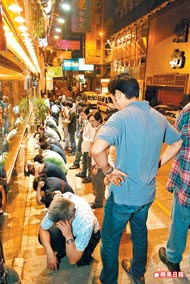
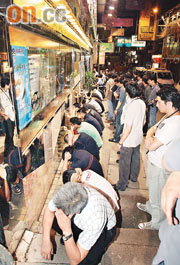
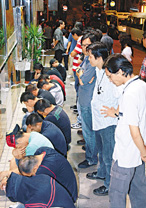
The Taizhou city publicity department and Internet administration came up with a proposal to set up city- and county-level teams of Internet commentators. The newspaper editors' committee asked that Taizhou Daily name two persons each from its news center, its editorial center and its supplement section and that the Taizhou Evening News and the Taizhou Commercial Press to name two each. The above forms the core of about 30 Internet commentators overall. What are the qualifications?
(1) The principal duties of the Internet commentators are:
- make positive commentary and articulate main themes consistent with the work and plans of the city party and government;
- organize persuasive commentary on hot topics to remove doubts and provide proper guidance on the Internet;
- disclose information on suddenly breaking incidents on a timely basis and reduce the space for rumors to spread;
- fight back powerfully against the malicious distortions from hostile forces, dispels the rumors, clarify the facts, increase the ability of the people to tell right from wrong and oppose the infiltration of the ideas of the hostile forces.(2) The basic qualities of the Internet commentators are:
- firm political position, knowledge of overall policy directions of the party and government;
- firm grasp of current work of the local party and government, including the related policies and laws;
- familiarity with basic Internet procedures and the unique features and rules of Internet communication;
- ability to write well and use the Internet language.(3) Qualifications for the Taizhou Internet commentators:
- the mission is to "publicize for the Party and to speak on behalf of the people" and to have a firm sense of social responsibility;
- the ability to set up a news commentary website in which the real identity is disclosed in order to establish a good image;
- act according to the city party and government in the handling of major suddenly breaking events.(4) Team building and management
- The Taizhou Internet commentators will receive one-year contracts from the newspapers;
- the articles published by the commentators will be paid at the same rate for website correspondents;
- the articles published by the commentators will be graded and included in the overall annual evaluation.
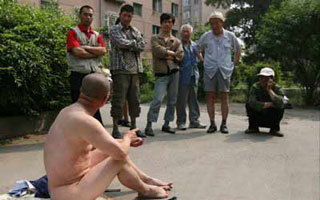
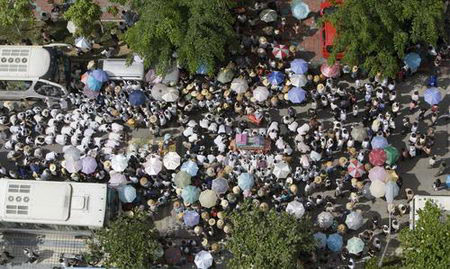
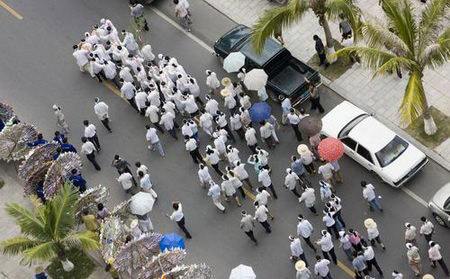
If you want a review of the details of that case, you can check out: The Vote Buying Case in Taiwan.
For more details, here is TVBS's summary of the four major points in the court decision:
(1) Shortly right before the election itself, Chen Chu's campaign team broadcast certain accusations about "Huang Chun-ying has been caught in vote-buying." The evidence for her accusations do not objectively support her conclusions.
(2) Chen Chu's campaign team used a heavy amount of negative campaign tactics against Huang Chun-ying during the time period before the election when such tactics are prohibited by law. Huang had no time to repute those charges.
(3) Chen Chu's campaign team interfered with the ability of others to hold a fair election, and this is regarded as not permissible under the law.
(4) The court believes that the actions of the campaign team were authorized by Chen Chu and she bears the corresponding responsibility.
If the election of Chen Chu is annulled, then she will be disposed and Huang Chun-ying will be declared the new mayor. If the election itself is annulled, then a new election shall be held. The court went for the first option and rejected the second option. In other words, if Chen Chu loses her appeal, Huang Chun-ying will be the new mayor.
Note: Part of the evidence in the complaint was that Chen Chu campaign headquarters provided videotapes to Liberty Times, Taiwan Times, SETV and FTV late in the evening before the day of the election. The law requires the campaigns to stop all press releases by that time.
More than 630,000 public housing residents will have their rent cut by 11.6 percent from August after lawmakers passed controversial amendments to remove clauses from statutes that cap rent at 10 percent of tenants' median income.Following more than six hours of highly charged debate, the Legislative Council passed the Housing (Amendment) Bill 2007 by 40 votes to four. Four members abstained from voting.
Secretary for Housing, Planning and Lands Michael Suen Ming-yeung said the public housing rent 10 percent limit had proved to be flawed. In its place now is a flexible rent-adjustment mechanism based on changes in average household incomes of public housing tenants. The rent review period is also shortened from every three years to two years.
As the debate began, about 30 public housing residents protested outside Legco, demanding lawmakers vote against the bill and its 11.6 percent rent cut, saying it was poison in disguise.
So you will never find out the reason why those protestors thought that this was poison in disguise.
Meanwhile, do you think that the local Chinese-language newspapers are going to be more informative? Yes, they gave the protest a lot of play:
(The Sun)
Previously, a mainland Chinese woman named Zhang came to Hong Kong on a temporary visa. On the evening of the day before yesterday, she joined the protest organizated by the Alliance for Defending Grassroots Housing Rights. At around 9pm, the Legislative Council voted to pass the Housing (Amendment) Bill 2007. More than 10 protestors sat down inside the Legilslative Council building to protest. They jostled with the security guards and they were arrested by the police.
As the police were taking the protestors away, Zhang who had been outside suddenly rushed up to embrace one police woman and kissed her in the mouth. The female police woman was thoroughly confounded and began to cry. The other police officers arrested Zhang.
According to the Alliance for Defending Grassroots Housing Rights, Zhang is not a member and they do not know who she is. At the earlier protest outside the Legislative Council, Zhang had attempted to make a speech but she was not allowed to do so.
The policewoman who was kissedIf you really want to find out what is going on, it is up to independent media such as InMediaHK.
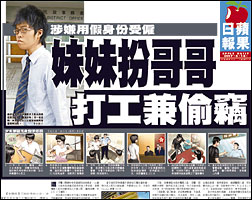
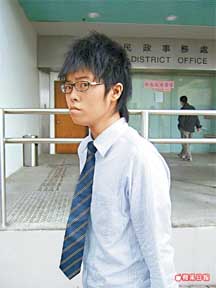
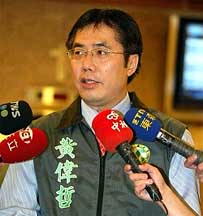
(China Times) The problem is with your brain, not your bloodline.
Do you have a problem with your bloodline? I don't. But DPP legislator Huang Wei-cher says that his bloodline is impure and that is his biggest problem during election. The voters do not ask about his political skills, but they only ask about the purity of his bloodline.
Huang Wei-cher astounds me. He is a Taiwanese, from Tainan county, just like the present leader Chen Shui-bian. Normally speaking, this bloodline is the purest of pure and quite impeccable. He is saying that because he has a younger sister. Just like him, this sister is a Taiwanese, from Tainan county. What is wrong with her? The only thing bad about her is that she detests Chen Shui-bian.
But there are many people who detest Chen Shui-bian. You can stop anyone in the street and ask, and there has to be more than just Huang Wei-cher's sister alone. Huang Jih-shang's biggest problem is that she used to oppose the Kuomintang. Even if she was not part of the Democratic Progressive Party, she was definitely in the "opposition" when the Kuomintang was the ruling party. After the DPP assumed power, her rebelliousness did not change and she continued to consider herself to be the "opposition" which monitors the ruling party. When the Kuomintang was in charge, this was known as "progressive"; when the DDP took charge, this becomes politically incorrect or even "unorthodox."
Huang Wei-cher is mad at Huang Jih-shang for making him suffer in his electoral district, to the extent that even his mother feels bad. When he speaks about the impurity of his bloodline, it is frankly an accusation against his own parents. In plain language, this is saying: "Why did you bring this younger sister into the world for?"
This is most peculiar ... are political positions really so serious? Taiwan claims to be democratic and diverse. But if you cannot even tolerate different opinions at the dinner table, how can there be democratic diversity?
The Democratic Progressive Party is the party that was established to break down one-party rule and let the hundred flowers bloom in Taiwanese society. That is why they won the support of the people. Once this democratic party took charge, it does not want diversity anymore. It won't even allow a party member to have a sibling that has different political opinions.
... It is hard to imagine that the voting preferences inside a household could be made uniform. It is very normal to have different types of supporters. Why else is this called a democratic election? In 2000, in my own home, my mother and sister voted for Chen Shui-bian while my father wanted to vote for Lian Chan. My mother made fun of this: "Why bother with that vote?" My father laughed and said, "Hmmm ... the people have the right to vote freely. This is none of your business." With my husband's family, we asked each other about our voting preferences. Nobody said anything and they only carried mysterious similes. "This is a secret ballot, so you should not interfere with what others do." But the domestic helper could not help but interject: "I have even received the bribe money for my vote. Why would I go and vote!" The whole family laughed their hearts out. My guess was that there were voters for Lian, Soong and Chen in that household.
Come 2004, and the voting preferences were obviously uniform without even having to ask. But we lost. We signed. We watched the crowds on Ketagalan Boulevard on television, but what can they do? One week later, when we turned on the television, we only worried about when the crowds would go home. If they don't go home, the stock market will not rise. Such is life, such is democracy. But when Huang Wei-cher thinks that his younger sister's political position was a factor in his re-election, then the problem is with his brain, not his bloodline.
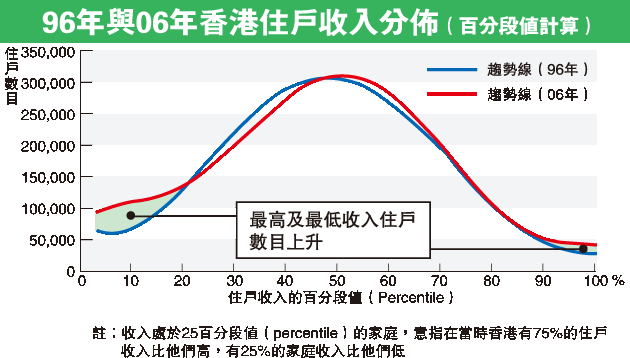
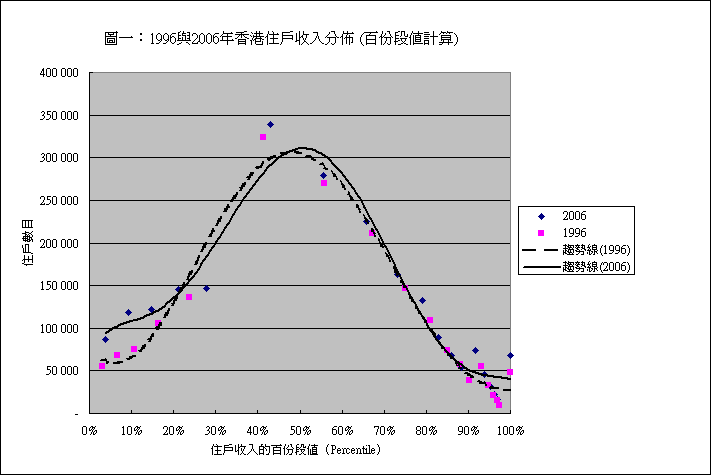
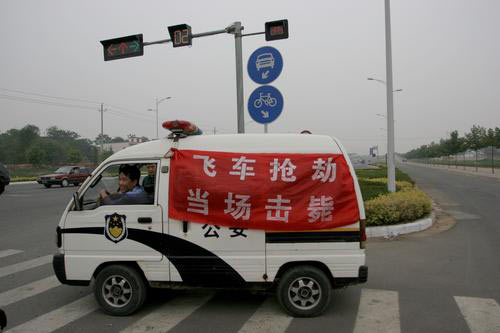
"Yahoo is dismayed that citizens in China have been imprisoned for expressing their political views on the Internet," the company said in the statement faxed to The Associated Press, which asked Yahoo to comment on Shi's lawsuit. The Internet company also said it has told China that it condemns "punishment of any activity internationally recognized as free expression."
But there is a second part in the Yahoo statement:
However, Yahoo added that companies operating in China must comply with Chinese law or their employees risk facing civil or criminal penalties.
Here is the old ESWN post: The Third Way For Yahoo (February 11, 2006). I have yet to read anyone who could propose a viable way for Yahoo to operate in China such that it could (1) protect freedom of speech/press; (2) comply with legitimate requests from law enforcement; (3) satisfy the terms of its Internet Content Provider license. The most constructive advice is for yahoo.com.cn to make it very clear that they will cooperate with law enforcement.
If neighborhood relocation does not consider people first, then we might as well as go back to holding criticism sessions of landlords. At a time when the awareness of civil rights is rising and the people want to be their own masters, the "relocation gangs" are having a hard time. In the Chongqing nail house case, the authorities and the real estate developers were embarrassed. So what happens when you come across more nail houses? A brilliant mind has come up with a solution in the Jiuxianqiao area of Beijing -- "Let us all vote on this! If the majority agrees with demolition, then we go ahead and get rid of the nail houses!"
On June 9, a "people's referendum" was held for the 5,473 households affected by the project. At 11:40pm, as witnessed by public notaries and observers, the Jiuxianqiao street association announced the results: 2,451 "yes" versus 1,228 "no" with 32 voids for a total of 3,711 votes. Therefore, the project will proceed.
This "referendum proposal" was challenged strongly by the media and netizens from the very start, and the doubts will continue. The simplest question is this: As asset owner, each person has control only over his/her own assets. Since I don't have the right to use my signature to withdraw money from your bank account, why should you have the right to use your signature on a ballot to take away my house?
... In recent years, people are often heard debating whether democracy is a good or bad thing. In my view, democracy had better be something first. If democracy isn't even anything, then we should not be debating about whether democracy is good or bad; we should instead be debating whether democracy is real or fake. We see here that a certain government department had manufactured a non-existent "public interest" in order for the Jiuxianqiao residents to hold a "public referendum. Obviously, this type of so-called democracy which uses public opinion to damage the rights of others by voting is not true democracy. It is not the kind of democracy that our generation or previous generations longed for. According to Tocqueville's explanation, the "Jiuxianqiao style of democracy" is at most "the tyranny of the majority." According to my understanding, they had organized a "morally justified robbery with the participation of the majority of the people." The worst part is that in front of the majority, each one of us is a potential victim of exploitation.
Related Link: Beijing Demolition Plan on Hold as "Voters" Object Reuters, June 11, 2007.
The Church of England accused Sony on Saturday of using a cathedral in Britain as the backdrop to a violent computer game, and said it should be withdrawn from shop shelves. The church said Sony did not ask for permission to use Manchester Cathedral and demanded an apology. The popular new PlayStation 3 game, "Resistance: Fall of Man," shows a virtual shootout between rival gunmen with hundreds of people killed inside the cathedral. Church officials described Sony's alleged use of the building as "sick" and sacrilegious.
I've played the Manchester Cathedral segment many times. I do not consider this to be a "shootout between rival gunmen." This is not a WW II game of Allies versus Nazis. Instead, it is a science fiction game set in 1951 with the fictional enemy being the Chimera race that was created accidentally from biological experiments conducted in Russia in the 1930's. The point is that when the enemy is de-humanized, then any action against them is permissible. Even in real human wars, the enemy is usually de-humanized (the Nazis skunks, the Vietnamese gooks, the Iraqi hajjs, etc). Anyway, here is the description of the action at (IGN FAQ):
As you get near the opening to enter the Cathedral, a new creature will jump up over the wall. Meet the Howler. This is the biggest, meanest dog you'll ever meet. If you read the last Intelligence Document you picked up, you'll see why I told you to arm the Rossmore. This animal is going to come right at you and he's going to do it quickly. He'll be in your face before you know it, and when he is, put a double shot (L1) of Rossmore in HIS face. The Howler will shake off the first shot and come at you again, so put a second double shot into his face and he'll go down for good. When the Howler is dead you will have reached the moment you have been waiting for. Your vision will blur and this disaster of a chapter will be over.You're inside the Cathedral now, and in the midst of Leaper Hell. Leapers in numbers greater than you've ever seen are pouring off the walls to both sides of you. As soon as you have control, immediately back all the way up to the door to the Cathedral and arm the Rossmore. This is a wide doorway, but you can still use it to try to funnel the rush of Leapers. Just keep shooting into the groups to keep them from making it to you. You're going to need all the health you can keep when this is over, so don't let them get to you. As long as you keep spraying the doorway with the Rossmore, you should easily keep yourself scratch free by the time they stop coming at you. Don't worry about your friends. There was nothing you could have done for them anyway. When the wash of Leapers has stopped, you will still hear the screaming and if you look carefully ahead to the other end of the Cathedral, you'll still see a bunch of them collected down near the end. Move forward just a bit and spray the remainder with your Carbine. Things will fall silent when they are all dead, but this only lasts for a couple of seconds.
Watch the boards blocking the opposite end of the Cathedral and they will soon disappear into a cloud of dust. Get just close enough to this archway so that you can throw 2 or 3 grenades into the dust cloud as soon as it happens. Ladies and gentleman, meet the Steelheads. The Steelheads are much larger, much stronger versions of the Hybrids and they are wielding the weapon known as the Auger. There is no escape from the Auger, as it has the ability to shoot through cover, and as the round passes through cover, it actually increases in strength. If you managed to get about 3 grenades into the archway before you even saw the Steelheads, there is a pretty good chance you got both of them down before they got too close to you, but if one does make it through, he probably took a beating from the grenades and shouldn't take much to lay him down. If you didn't have any grenades, keep moving to avoid the Auger rounds. Stop long enough to put a tag on one of them and empty a clip as you dodge back and forth. When they are down and done for, arm yourself with the Rossmore and cautiously head for the freshly opened archway.
As you get to the archway, you'll be met from the other side by a Hybrid and a Howler. The Hybrid is going to stay on his side, but the Howler wants a bite of your butt, so back away from him and put two double shots from the Rossmore in his face to lay him down. If you haven't already, snatch up an Auger of your very own from one of the recently deceased Steelheads and head back up to the archway to take care of the first Hybrid you saw and two more that decide to join in the fray as well. Stay on your side of the wall and use the Auger to shoot them through the wall. The reticle will turn red when you have an enemy in the Auger's sight, so just fire right into the wall and wait for the screams from the other side. When those three are silent, take some time to explore the Cathedral, pick up any health and ammo you need.
Here are some pictures of the enemy soldiers -- if you don't shoot them dead, they will surely kill you without mercy.
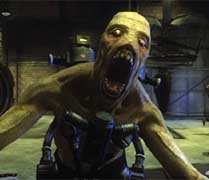
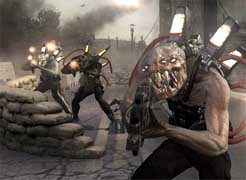

A netizen has posted a video of his play of the Manchester Cathedral episode at YouTube.
The point here is that "War Is Hell." In war, nobody pauses to contemplate that a particular location is sacrosanct. If you have to enter a location and kill the enemies, then it is just business as usual. During World War II, a German bomb severely damaged the Manchester Cathedral; it took nearly twenty years to repair all of the destruction. If you don't like this, then you better think about changing the rules of engagement. But please bear in mind that game theory predicts that disadvantaged combatants will break the rules in order to use sacred sites as sanctuaries in order to change the odds, and this has happened frequently when Iraqi insurgents operate with mosques as their bases.
Hong Lok Yuen is a district council election seat in the Taipo district of New Territories in the Hong Kong SAR. The previously elected district councilor Man Chun-fai has decided to take on a more senior position and therefore his seat is up for re-election now. There will be another district council election for all of Hong Kong SAR later this year and this seat will be up for re-election again. But the result of this by-election will probably be indicative of what will happen in the upcoming election. That is to say, the winner of this election will likely win again in November.
As always, the best analysis comes from the blogger Derek Greyhound. Here are his analyses:
The Candidates: There were only two candidates: Tang Yau-fat who used to work for the former district councilor Man Chun-fai, and Ho Kwok-keung, who is a professional engineer. Neither candidate listed political party affiliation. However, Tang Yau-fat is with the rural sector that is supported by the pro-Beijing DAB while Ho Kwok-keung is supported by the pro-democracy Civic Party.
Demographics: The estimated population in 2007 is 14,856 persons, of which about 4,629 are registered voters. There are four distinct sectors in the district: (1) the upscale Hong Lok Yuen housing area; (2) the villages near the Fanling district; (3) the private homes near Hong Kong Yuen and the old Taipo market; (4) the villages and private homes near the Taipo Industrial Estate.
This setup reflects an M-shaped community -- there are some rich people and many poor people. In terms of personal income, 15% make more than HK$40,000 per month and more than 30% make less than HK$8,000 per month. Both are higher than the population percentages. In terms of education, more than 25% have university education and 20% have only elementary education. In terms of occupation, 25% are managers, administrators and professionals and 25% are in fishery and agriculture. Both education and occupation exhibit the M-shaped features.
In terms of population size, the Hong Lok Yuen housing area has about 1,200 voters (or 25%). By comparison, the villages have about 3,000 voters (or 65%). Anyone who wins the villages (in an overwhelming manner) will win this election.
In terms of social issues, the Hong Lok Yuen residents have their own upscale homes which should not have any issues with management and security; they drive their own cars and they will therefore not be concerned with public transportation issues; they are therefore more concerned about the images and positions of the candidates. By contrast the village residents will be concerned about basic infrastructure, recreational areas, drainage, street lamps, road repair/maintenance or even public benches to sit on. Traditionally, these problems are solved through the village network ties.
Prior Electoral Results: In 1999, the previous district councilor Man Chun-fai won by 786 to 431 votes over a Liberal Party candidate. In 2003, the same person won by 1,171 versus 495 over another candidate with the same rural village background.
Analysis of Outcomes: This is a lopsided contest, since Tang Yau-fat has the support of the local establishment, and he has a local field organization as well as the politcal accomplishments. Ho Kwok-keung has no local record or organization and his sole appeal is professionalism as an engineer. Ho might be good enough for the Hong Lok Yuen residents but he has no appeal to the village residents.Election Platforms:
Tang Yau-fat
"I am an independent candidate with no party affiliation. I was born here and I grew up here alongside Taipo. I have been involved in community service for more than twenty years. I am practical and pragmatic in serving the community: I want to act as the bridge between the government and the people, to obtain the rightful interests and benefits for the people, to improve the environment, public health, transporation and other matters ... if I am elected, I pledge to complete the unfinished work of the previous councilor Man Chun-fai ..."Ho Kwok-keung
- monitor the status of ongoing environment improvement projects through professional analysis
- monitor air pollution by the Tai Po Industrial Estate
- take concrete actions to improve outbound transportation for local residents
- support sustainable development by implementation of better local planning
- universal suffrage by 2012
Predictions: Assuming a turnout of 45%, there should be 2,000 votes of which Tang Yau-fat will get 1,400-1,500 (or 70%-75%) while Hon Kwok-leung will get 500-600 (or 25%-30%).
Actual Results: First of all, the weather was atrocious as there were red/yellow rain warnings for six hours in the early morning. Out of 4,625 registered voters, 1,424 cast votes (at 30.78%) (see Election Affairs Commission). So the Derek Greyhound blogger was too optimistic because he was basing it upon the voter turnout in the 2004 Legislative Council election under normal weather conditions.
Finally, out of the valid votes, 374 went to Ho Kwok-keung and 1,046 went to Tang Yau-fat. Thus, Tang Yau-fat got 73% of the votes (see Election Affairs Commission). So the Derek Greyhound blogger was right on.
Post-mortem analysis: If the pre-election analysis was dismal, the results confirmed the predictions. The question is whether the Civic Party and the pan-democrat camp will understand that they cannot compete on this basis (namely, parachuting an outsider into a community and expect to win on the basis of the brand name (plus handing out some flyers in the street and holding a few press conferences)).
When the video clip began, the middle-aged man had already fondled the woman. The bus is parked by the roadside and there are only a few passengers left on the bus. The middle-aged man is wearing a white shirt and black trousers. He is trying to get off the bus, but the driver blocks him and tells him that the police are on the way. A young woman is sitting in the front row. She is wearing very short pants and has long hair.
The middle-aged man went back to sit down. The woman curses him: "You just wait. I'm telling you. You cannot fondle just anyone on the bus. You better check who it is ... Have you ever experienced a woman? You are a sex fiend ... You have gone too far. If you want to be 'dirty', you should not be dirty with me ..." The man mumbles something, which only draws more curses.
Then the woman stands up and screams even louder. A man in uniform enters the bus from the front door and proceeds to kick the middle-aged man in the face (note: this occurred around 2:00 into part I of the video clip). The middle-aged man's body swayed to the side upon impact. Another male passenger rushes up to stop the assault. The uniformed man yells and threatens: "I'm going to kill you!" Then he steps off the bus. The middle-aged man is holding his head with both hands in distress. He tries to get up twice but another male passenger tells him to sit and wait for the police, who arrives and tries to reconstruct the scene in Part 2.
This video was loaded from a Guangzhou IP address on June 8th at 3:53pm. By 7:53pm, there were 5,700 viewings. The video was also posted on the front page of the Oeeee.com portal. The Internet comments were mixed. One big question was the flying kick from the uniformed man (probably a military soldier or a militia police officer). What gives him the right to take action into his own hands (eh, his foot)? How does the rule of law operate in China?
广州咸湿巴士阿叔-1
56.com
广州咸湿巴士阿叔-2
56.com
Related link: wwud
Under the Bridge; 我看到的是那一脚
闾丘露薇
If it were not for this revolutionary step for a Xiong Yao show, we would have forgotten about the traditional Xiong Yao style. Yes, these are shows in which people cry all the time or speak in highly literary style. These shows are now broadly disliked by the general public, which is like comparing the old songs of Teresa Teng to that of Jay Chou today -- they just represent the youths of different eras.
Nowaways, people wonder what is the big deal about love? But in the not so far gone era of Xiong Yao, love was such a big deal. You can sigh, you can cry and you can even die for it. The Xiong Yao fans who used to run away to read her novels in a corner are loyals fans of the Korean drama <Jewel of the Palace> nowadays. Now they get a chance to relive those memories. They may be sneered at by young people who are at their own age back then, but that is actually fine for this is exactly how love evolves over time. Perhaps we will be able get a re-reading of the Xiong Yao spirit of love.
A China-based Microsoft site is testing a new software that draws a sharp profile of Internet users, including age, sex and geographic origin, writes Reporters Without Borders (via The New Scientist). The software draws conclusions, not by form entry, but by user behavior.
The goal of the new software is to better target its advertising, but Reporters Without Borders points out the software could be used to target "subversive citizens."
The organization stated, "[We] believe it is unacceptable to carry out this kind of sensitive research in a country such as China, where 50 people are currently in prison because of what they posted online.”
... The New Scientist drew its report from a study called "Demographic Prediction Based on Users’ Browsing Behavior," published by researchers working in a Beijing Microsoft lab.
The study outlined methods that enable the verification - and clarification - of information provided on online forms by comparing entries to their surfing habits. The information would be drawn from surfers' browser cache and cookies.
The fears about this type of software are vastly overstated. Let me quote from myself on a similar profiling project (see Homeland Security: Are Readership Surveys Safe?).
Erectile difficulty is a condition that afflicts 7.1 million adults in the United States. There are 216 million adults in the United States. The top 10% predicted by the best model contains 3 million of these adults with erectile difficulty. Thus, somewhere within the top 10% of 21.6 million adults are 3 million with erectile difficulty. Good? From the opposite view, 18.6 (or 86%) of this top 10% are "false positives."
We note that under the legislation H.R. 4567, Department of Homeland Security Appropriations Act, 2005 (Public Law 108-334), it is required that "the underlying error rate of the government and private data bases that will used both to establish identity and assign a risk level to a passenger will not produce a large number of false positives that will result in a significant number of passengers being treated mistakenly or security resources being diverted."
For example, could the 19 terrorists involved in the 9/11 attacks have been detected beforehand? Unfortunately, there is no software that can generate the names of those 19 and no one else. The problem is not with the software. Rather, there is a limit to the informativeness of any known data. Instead, the best software based upon the currently known data may generate 100,000 names of which the 19 persons are included. The FBI does not have the resources to mount full investigation on all 100,000 names.
In like manner, the number of "subversives" in China is actually small relative to the total population. A predictive model for "subversives" will yield a list of names (say 400,000 names) who have high probabilities of being "subversive." The number of "false positives" is likely to be higher than 99%. As many employees as the security departments have, they still do not have the security resources to mount full investigations of the named persons. That is why they don't do it. This is not about them being tolerant or lenient; this is just a straightforward problem in resource allocation.
The Microsoft software is about a different problem in advertisement targeting. They are not interested in individuals; they are only interested in aggregate results. Thus, they can say -- if the advertisements are randomly, presented, the gender composition will be 60% male and 40% female. However, by targeting based upon the content of the browser cache, they can improve the percentage to 80% male for a razor client, or 80% female for a cosmetics client. There are still numerous false positives, but this targeting has made the same number of servings of the advertisement more efficient.
Similarly, in the erectile difficulty problem above, if you want the list of 7.1 million adults with the condition handed to you and nobody else, then the mission is impossible with any model because of the limits in the available data. But what if you want to run a direct mail campaign to 21.6 million adults? You can mail at random and there will be 710,000 target persons among the 21.6 million. Or you can use the predicted top 10% which has 3.1 million target persons.
Additional Link: FBI Data Mining Program Raises Eyebrows in Congress. ABC News.In theory, predictive analysis involves mapping a known pattern of terrorist behavior — for instance, the sequence and timing of such mundane activities as bank transactions and travel purchases — against a massive collection of such records like the NSAC databases. If an individual’s actions match the pattern, they can be considered a suspect, even if they have no known ties to any suspected terrorists or known terrorist groups.
Such a method would help identify “sleeper cells,” the FBI claims in its request — secret groups of terrorists living innocuously within the United States, waiting for a signal from a terrorist group leader to assemble and strike.
But to date the approach has not proven workable. So far, terrorism researchers “cannot readily distinguish the absolute scale of normal behaviors” for terrorists or ordinary Americans, conceded a 2006 document from the Office of the Director of National Intelligence and obtained by National Journal magazine. In other words, no one can figure out how terrorists act differently from normal Americans.
“We had no idea how on God’s earth you would characterize and capture normal behavior,” a former researcher for the ill-fated Total Information Awareness (TIA) program told the magazine last October.
On May 31, a netizen with the nickname "Waiting for the red apricot while standing at the top of the wall" posted on a Wenzhou Internet forum: "As he went by the Rui'an Lower Pond Luofeng Garden, he spotted a banner that said 'Robbery is not as good as stock speculation' and the attribution is to the city public security bureau.
This photograph aroused a great deal of public attention as well as the attention of the Rui'an public security bureau. Using technology, the Rui'an public security bureau located the netizen named Lin with the nickname "Waiting for the red apricot while standing at the top of the wall." Lin is a recent university graduate who lives in the Rui'an Lower Pond area.
The story was that Lin had received a photographs from a classmate. He thought that it was meaningful and so he made up the circumstances surrounding this banner (that is, he observed the banner while passing by Luofeng Garden in Rui'an Lower Pond) and thus smeared the public security bureau. In accordance with the Criminal Law, the Rui'an Public Security Bureau sentenced Lin to three days of administrative detention for his crime.
If this photograph did not come from Wenzhou, then where did it come from? One rumor has it coming from Shenzhen, but the Shenzhen Public Security Bureau has made an unequivocal denial. Another rumor has it coming from Fuzhou's Sanqiao district. An Internet campaign involving netizens canvassing the Sanqiao district also precluded this possiblity.
Finally, one PhotoShop expert proposed that the photograph was faked: the words in the banner were completely straight when the banner itself was not perfectly straight! It is not known who created the first photograph.
The Oriental Daily is credited for a couple of breakthroughs. In 1977, it was the first local paper to launch a complaint page. These complaints could be against both public agencies (including governmental departments) and private companies. Readers can phone, fax or even complain through the internet using realtime conference system. If the reporters find the complaints interesting, they investigate and report them, acting as a sort of ombudsman for their readers. This has contributed to local newspaper's role as an influential channel for citizens to express their ideas and articulate their antipathy. The complaint page also reports on the response from the target of the complaints. It thus tries to stay neutral and fair, aiming only to arouse public awareness on the issues.
So the attraction of Oriental Daily is that it is a service-oriented newspaper that manages to deliver for the grassroots, very much like the district councilors might. The difference is that the district councilors may take months before getting a result, whereas the largest newspaper in town can deliver quicker and even more effectively.
So this time, Hong Kong Bin Laden set up some banners and displayed them at prominent locations such as the Golden Bauhinia at the Hong Kong Convention and Exhibition Center, the Causeway Bay MTR station, the Tai Koo MTR, the HSBC Headquarters Building, Exchange Square, etc. Like any other Oriental Daily reader, Hong Kong Bin Laden wrote letters of complaint to Oriental Daily on a specific issue of public interest that he described in those banners.
"Hong Kong Bin Laden"It is the nature of that complaint that makes it so juicily ironic. Hong Kong Bin Laden is complaining that two brothers Ma Sik-chun and Ma Sik-yu are suspected of being major narcotic smugglers in Hong Kong and they are presently fugitives from the law (note: Ma Sik-yu is supposed to have died in 1992). Hong Kong Bin Laden wants Oriental Daily to mount a public campaign to pressure the Hong Kong government to follow up on this case and seek justice. Yes, so what? In Hong Kong, Ma Sik-yu is known by his nickname "White Powder Ma" because of his involvement in the heroin trade. Ma Sik-chun is known as "Oriental Ma" because he was the founder of Oriental Daily!
At the trial of Hong Kong Bin Laden, the Oriental Daily Group vice chairman Lai Kam-wah was questioned in court about the founder of Oriental Daily and admitted that he was aware that Ma Sik-chun was summoned to appear in court but fled to Taiwan without ever returning to Hong Kong. When Lai was asked whether he was aware that the case involved the sale of heroin, Lai paused for a while before he said: "I don't personally know."
(Lai Kam-wah)With respect to the complaints that Hong Kong Bin Laden filed with Oriental Daily against the Ma's, Lai said that Oriental Daily welcomes complaints from citizens but "you can write but that does not mean that we will accept the complaints." Asked about his knowledge of whether Oriental Daily ever investigated the case of the Ma brothers as well as the libel lawsuit filed by Oriental Daily Group against Next Weekly, Lai said that he does not know. "I can't possibly know everything."
Let it be added that Lai is one of the very few people in Hong Kong who does not know.

In Shenzhen, more than a hundred police including seven carloads of riot police with attack dogs quelled a mass incident yesterday.
At 3:30pm, the Southern Metropolis Daily hotline received a citizien tip that there was a big fight in the Huaxiangbei area. The reporter arrirved at the scene 20 minutes later and saw several thousand spectators gathered at the scene. Two used mobile phone markets were at that location. There was smoke rising from the scene and shouts of "Fire!" Several men were pointing at the spectators and screaming: "What are you looking at?" and "Get lost!" Then a man emerged from the market with a fire extinguisher and sprayed the crowd with fume. Several dozens of men in blue with steel pipes in hand were standing in front of the building. Two police attempted to address them with a loudspeaker. The men in blue also waved the steel pipes at the spectators and yelled: "No photographs." They also forced the spectators who were taking photographs with their mobile phone cameras to hand over over their equipment.
Afterwards, the reporter was told by an informed source that there was a clash between the security guards from the two markets as a result of a dispute over the public space between them. More than one hundred people fought with steel pipes and knives, and many counters inside the markets were smashed.
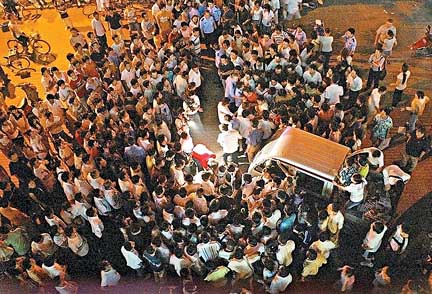

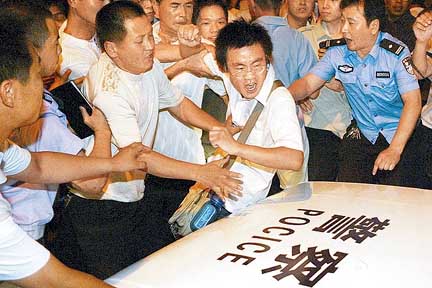
警察的态度恶劣) and the crowd began to rock the police car. The police attempted to arrest some of the crowd members, which made the whole crowd even angrier because the police did nothing with the city administraots. The crowd did not manage to overturn the police car, but they moved it five meters down the road. Finally, more police came to extract the police officers at the scene. So the crowd turned their attention to the city administration's vehicle, which they overturned and set on fire.At around 18:00 on June 6, 2007, the city administration law enforcement team in the Jinshui district of Zhengzhou city was clearing out the illegal sidewalk vendors when a clash occurred with one merchant. This drew the nearby citizens and students to gather and watch, and blocked traffic in the area. During the process, the security patrol members clashed with individual citizens and students.
After the incident, the Jinshui district party/government paid a high degree of attention. After an investigation, a number of city administration workers have been severely punished overnight.
[a list of eleven persons were named with corresponding punishment including reprimands, demerits, dismissmals and detention]
The district party/government urges all law enforcement agencies in the district to draw a lesson from this incident.
What could these city administrators have done to cause punishments be handed out against them overnight? What exactly are these 'clashes'?
The version of the same story not from the Zhengzhou city government was as follows (see also Boxun):
On the evening of June 6, a female student from a nearby school set up a sidewalk stall and ran into the team of city administrators. During the law enforcement process, four to six city adminstrators physically assaulted the female student, including knocking out some of her teeth.
When the police arrived, the female student was placed on a stretcher under handcuffs while sobbing in pain. The section of the road was blocked by spectators who could not understand why the persons who assaulted the female student were not arrested. When the scene got ugly, the city administrators got into the police car, but the other students surrounded the car to prevent it from leaving. During the process, the police behaved with abodminablea attitudes (
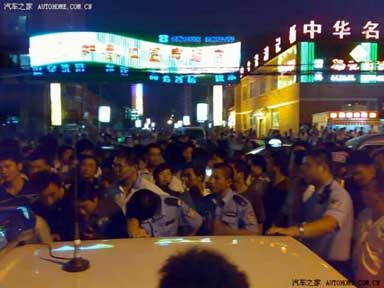
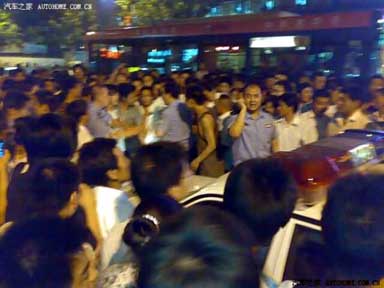
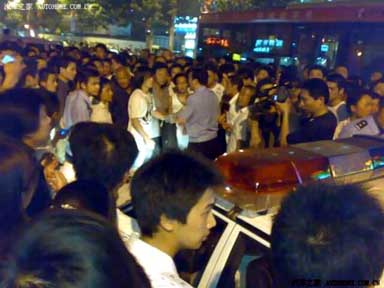
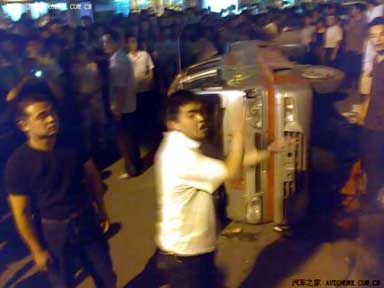
Video: Sina.com video
... Concerning the PX affair, the mainland media did not seem to have made any reporting. All the public opinion pressure came from the Internet and mobile telephones. In China, the media are the public voice. In the past, if you control the media, then there is nothing that the people can do to raise a storm. Unfortunately, that era has gone past. Even if the Internet is filtered and even if mobile telephones are blocked, the citizens of Xiamen could not be prevented from calling out for the PX project to be stopped. This is about "the era of YOU" where you finally have your own turf, even though your "turf" used to be occupied by others.
It is hypothetical whether the Internet can accelerate the progress of democracy in China. Maybe it can be proven in theory. But we now have a live and actual example in front of us and we cannot ignore the power of the Internet. In the past, the government made its decisions on the basis of the will of the senior officials while ignoring the existence of the interests of the people. The reason for that neglect is that they can use brute strength to shut the people up and disallow any dissident voice. Because they can act as they wish, this has become a habit.
In the Internet era, they think that they can do whatever they want. But in the case of the PX project, they encountered the strongest "nail house" ever. This was not a single person who wants to fight back, but this was an entire group of people. In its notice, the Xiamen public security bureau said: "The citizens can express their opinions and recommendations through the normal channels." The problem is: What would happen with the normal channels of communication? Since when have our government departments established normal channels of communication? At least, I have never seen them. If you don't allow normal channels, the people will use unusual methods. Once they use unusual methods, you will suffer.
The Xiamen PX project actually posed a very serious problem to the government departments. You must change your mindset and not use your unreasonable ways of handling things because that can only intensify conflicts. You must see that people exist and you must listen to their voices, or else it will be embarrassing. Did not Comrade Deng Xiaoping say: "The revolutionary party is not afraid of listening to the calls from the people. It is only afraid of silence."? Secretary General Jiang said: "Represent the basic interests of the broad masses of China." The leaders cite these clichés everyday, but their actions show differently. It seems that the theory does not work! But aren't we talking about building a harmonious society nowadays? If you keep telling the people to build a harmonious society while your government departments are not harmonious, then how can the people be harmonious? How can this society be harmonious?
Water can carry boats, but they can also be used to make rice soup. This time, the Xiamen government was turned into a pot of rice soup by the people. Of course, we cannot be so optimistic as to think that the Xiamen people's experience can be extended to the entire country. That is wishful thinking. But I am still worried that at some time later, how many Xiamen citizens will lose their jobs, how many students will be forced to quit school and how many "other persons" will lose their freedom?
The progress of history always exacts a price.
If President Bush and Vice President Cheney can blurt out vulgar language, then the government cannot punish broadcast television stations for broadcasting the same words in similarly fleeting contexts. That, in essence, was the decision on Monday, when a federal appeals panel struck down the government policy that allows stations and networks to be fined if they broadcast shows containing obscene language. Although the case was primarily concerned with what is known as “fleeting expletives,” or blurted obscenities, on television, both network executives and top officials at the Federal Communications Commission said the opinion could gut the ability of the commission to regulate any speech on television or radio.
... Beginning with the F.C.C.’s indecency finding in a case against NBC for a vulgarity uttered by the U2 singer Bono during the Golden Globes awards ceremony in 2003, President Bush’s Republican and Democratic appointees to the commission have imposed a tougher policy by punishing any station that broadcast a fleeting expletive. That includes vulgar language blurted out on live shows like the Golden Globes or scripted shows like “NYPD Blue,” which was cited in the case. Reversing decades of a more lenient policy, the commission had found that the mere utterance of certain words implied that sexual or excretory acts were carried out and therefore violated the indecency rules.
But the judges said vulgar words are just as often used out of frustration or excitement, and not to convey any broader obscene meaning. “In recent times even the top leaders of our government have used variants of these expletives in a manner that no reasonable person would believe referenced sexual or excretory organs or activities.” Adopting an argument made by lawyers for NBC, the judges then cited examples in which Mr. Bush and Mr. Cheney had used the same language that would be penalized under the policy. Mr. Bush was caught on videotape last July using a common vulgarity that the commission finds objectionable in a conversation with Prime Minister Tony Blair of Britain. Three years ago, Mr. Cheney was widely reported to have muttered an angry obscene version of “get lost” to Senator Patrick Leahy on the floor of the United States Senate.
Dear ESWN
This video and currently on YouTube and potentially explosive. But just reading the comments for this video is enough to get a good feeling about what it is like to be Taiwanese..... I thought you like to know of its existence.
It is a video about the great Taiwanese nation (in the people's sense of the word) featuring achievements of athletes at the Olympics or Ultramarathoners. It is a fine document (and the comments demonstrate it as well) at how establishing a Taiwanese identity is threatened by almost everything: The Chinese (government and people), the Taiwanese themselves (Guomingdang supporters not wanting to part from China) and so on.
Yet the video does indicate that there is among young people a sense of Taiwanese identity which is very much striving to rid itself from the intense charged politics of cross- straits politics and its neverending power game.
台灣加油 ! Taiwanese hero ! (at YouTube)
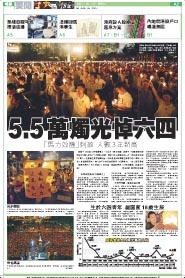
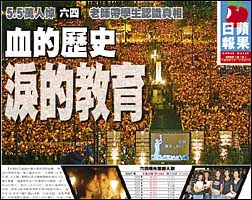
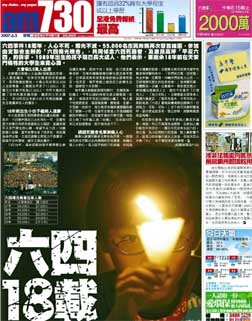
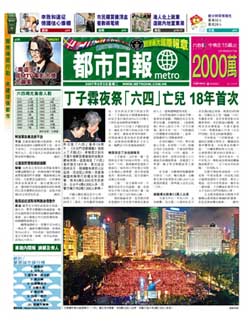
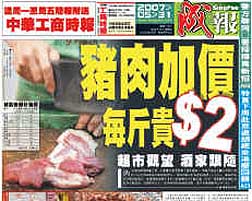

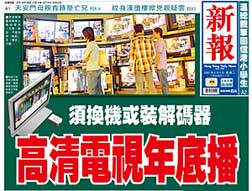
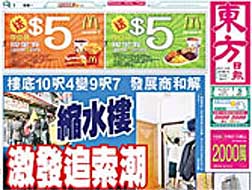
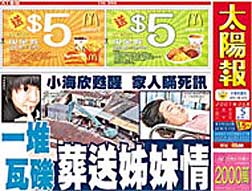
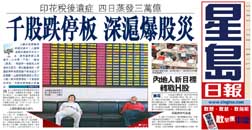
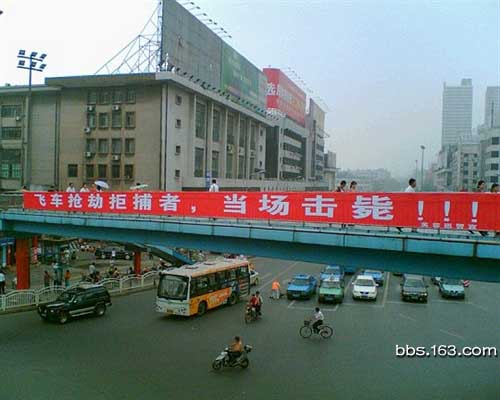
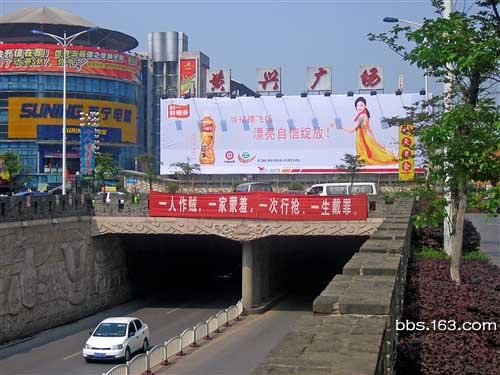

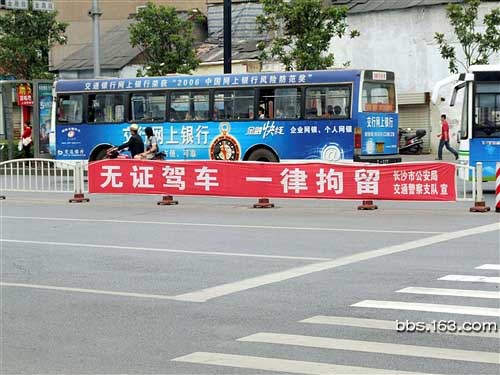
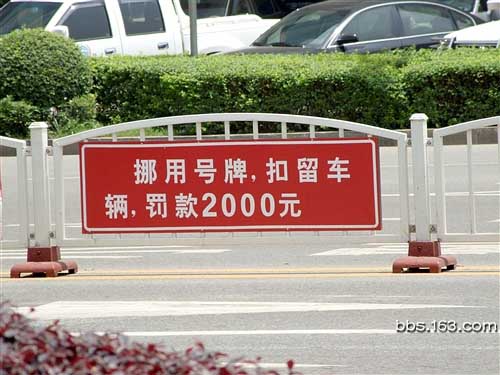
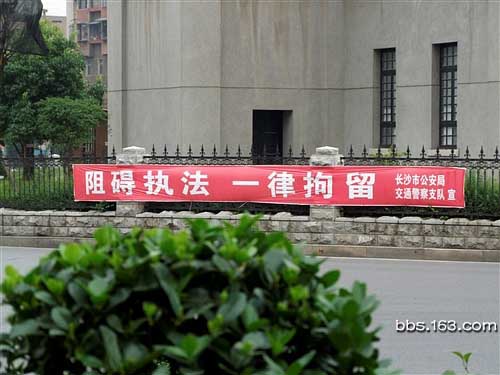

A young woman unaware of the June 4 Tiananmen crackdown is believed to have let an advertisement saluting the mothers of students killed in and around the central Beijing square make its way into a Chengdu newspaper, highlighting the national collective amnesia about the events of 18 years ago. Two sources with connections to the Chengdu Evening News, which ran the controversial 13 character classified adverstisement on Monday, said the woman, who worked for an advertising company responsible for the newspaper's classified section, was in charge of receiving content from clients.
A man visited the copmany on May 30 and the woman took down the advertisement - which read "Saluting the adamanat Tiananmen Mothers" - from the client without knowledge of the June 4 crackdown, the sources said. "She called the man back two days later to check what June 4 meant and the man said it was [a date that] a mining disaster took place," one source said. The woman's age was not known but the source said she had just graduate from school.
From which social sector do you think the most capable Chief Executive can be found? Why?
Public servants (36%)
- 56%: familiarity with how the government is run
- 14%: senior government officials are usually elites
- 14%: not too many private interests
- 13%: support by public servants which makes it easier to govern
- 3%: other reasons
Business/Professional (17%)
- 34%: more pragmatic, policies will be less aggressive
- 29%: familiar with Hong Kong economy, push forward future development
- 18%: have connections to recruit talents
- 13%: bring new ideas to government
- 6%: other reasonsDemocrats (10%)
- 49%: can accelerate the pace of democratization
- 18%: local networks to keep in touch with public opinion
- 15%: support by democrats in the Legislature
- 12%: no close ties with business interests
- 6%: other reasonsPatriots (8%)
- 49%: good relationships with central government
- 25%: connections in various strata, can help different interests to negotiate
- 13%: political stance is not extreme
- 5%: locally powerful, able to mobilize people
- 8%: other reasonsWhy does Hong Kong lack people with political talents?
- 37%: too much social strife, people do not want to enter politics
- 28%: talented people enter business sector instead
- 12%: political leaders refuse to hand over power to younger generation, who cannot rise up through the ranks
- 11%: British colonial administration waited too long before allowing democracy
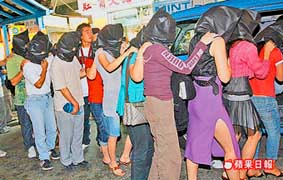
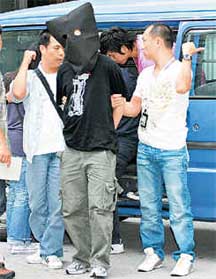
If the June 4th incident is vindicated, that would imply that democratic rule will arrive soon in mainland China. This is the assessment of the Chinese democratic movement veteran Ren Wanding. He said: "When will the Chinese Communists vindicate June 4th? According to past practice and historical experience, it is not likely that the leadership will vindicate the June 4th incident. This is an old Chinese Communist rule. For the longest time, they will not vindicate any past political mistake. If we vindicate June 4th today, we will expect to have democratic reforms tomorrow and we won't wait. Therefore, the authorities will be very careful."
Ren Wanding had gone to jail twice for the democracy movement and spent eleven years in prison. Upon approval by the Beijing Public Security Bureua, Ren Wanding traveled for the first time outside of mainland China with his wife to spend one week in Hong Kong. This visit was for a physical examination and also to meet with friends. He had no problems entering and returning from Hong Kong. On the day after he returned to Beijing, he was visited by the Beijing Public Security Bureau workers in a meeting that was characterized as "routine" and "pro forma."
His Hong Kong friends were concerned that he spoke about sensitive topics such as the June 4th incident and the democratic movement while in Hong Kong such that he may not be permitted to return to mainland China. Ren said: "I was bold enough in what I wrote in Beijing. I said whatever I wanted to say without a care. So why should I censor myself once I arrive in Hong Kong? The Beijing authorities will not punish me for what I said in Hong Kong. There is no need for me to release my steam in Hong Kong. I have released everything while I was in Beijing."
... Ren Wanding believes that there has been a change in attitude by the Chinese Communists towards dissidents. In the 1950's and 1960's, China pursued the class struggle line and it was a matter of "life-or-death." At the end of the 1970's (during the democracy wall movement in 1978-1979), there emerged a modern demcoratic movement. The Communists treated the political prisoners of that movement as "there is only me and not you" instead of "life-or-death." They did not kill anyone; they only arrested and imprisoned them. "As long as I am in charge, your democracy will not be realized."
In the 1950's and 1960's, the rightists did not dare to resist the authorities, who would squash any resistance. In the 1970's and 1980's, the new democrats dared to resist and fight back. Ren Wanding said: "I was arrested in 1979 for the democracy wall. I resisted during my interrogation. They interrogated me for seven days in a row but I refused to answer their questions. I asked them instead: 'You have done no investigation and you arrested me for counter-revolutionary incitement and propaganda?' They did not respond. Throughout the proceedings, they did not resort to torture. They sentenced Wei Jingsheng to 15 years and I was sentenced to 13 years. In 1981, Hu Yaobang took over from Hua Guofeng and he issued this so-called benevolent directive of releasing us ahead of time. I was released after 4 years. I was later sent to Qincheng prison on account of the June 4th incident ..."
Ren Wanding believes that during the 1950's, the authorities actively attacked the so-called class enemies. By this generation, the authorities were reacting instead. Ren Wanding was unlike the so-called class enemy who had to report once a week after their release to the local public security bureau to write a report on his thoughts. He said: "This was an evolutionary process. Our actions showed that we must be treated rationally. You can detain and sentence me, and there is nothing that I can do about it. But you have to respect my character. After a long time of mental fighting, the police chat with me and said: "We know that you only want to promote democracy but not advocate violence. We know that you are doing this for the nation and its people.' We moved them with our own actions."
During the sensitive period around May 27, Xiamen University academician Zhao Yufen who instigated the proposal from the Chinese People's Political Consultative Conference members declined to be interviewed by Southern Weekend ... Zhao told the Southern Weekend reporter: "It is not appropriate to be interviewed because the academic debate has risen to a non-academic level." During a break in a meeting on the evening of May 28, she whispered: "Things have become more and more complicated."
The tidbits in The Zhao Yufen Story provide some hints as to why she behaves this way. A simplistic summary is that (A) she is a moral person and (B) she believes in organizational discipline. Sometimes (A) does not mesh with (B).
What gives me the right to make this sort of broad assertion about an individual? Zhao Yufen's curriculum vitae: 1971-1975 PhD State University of New York at Stony Brook. My curriculum vitae: 1971-1974 BS State University of New York at Stony Brook; 1975-1978 PhD State University of New York at Stony Brook. Indeed, we were acquaintences and we were part of the Chinese overseas student movements of that era.
I can also say that the People.com.cn story about her in The Zhao Yufen Story is not totally accurate. She was not allowed to return to Taiwan most likely because of her presentation of flowers to the visiting delegation of Chinese scientists and other similar activities related to mainland China and not just because she visited her maternal grandparents in Henan province. In that era, the State University of New York at Stony Brook was a battle zone between the Republic of China and the People's Republic of China, and it is certain that people were filing reports left and right back home. Zhao Yufen was not the only person barred from returning to Taiwan.
So why did Zhou Yufen decide to return to China? That is for her to explain. Based upon my perceived knowledge, it was for an ideal because power and money can be excluded with certainty (because she returned to China in 1979 and there can be no power or money in her situation). I don't know where she was or stood on June 4th, 1989. But she took a stand in 2007 with respect to the PX project, at the risk of losing funding and support for her work at Xiamen University. I cannot say more about her situation or state of mind, because I really don't know.
小輝俠).A dispute erupted among Democratic Progressive Party (DPP) legislative hopefuls yesterday after questions were raised over the credibility of the party's public polling process. ... The dispute arose after the Chinese-language Next Magazine said DPP Legislator Huang Chien-huei had leased 1,000 telephone lines in his own name to boost his chances of being called to take part in the poll. The magazine said 150 telephones had been set up in an apartment in Sanchong, Taipei County, while the other 850 lines were being directed to those 150 phones. The weekly said that Huang had staffers on stand-by in the apartment who had been told to say that they supported Huang if they were called by the pollsters.
Huang dismissed the report, saying the phone lines had been set up on May 15 to send recorded messages to voters, but that they were canceled 10 days later because of software problems.
It is by now normal to dismiss the 'tabloid' magazine Next Weekly (which happens to have the higher circulation in Taiwan) to be peddling sensationalism at the price of destroying freedom and democracy in Taiwan. Maybe. But have you actually read what Next Weekly presented?
Next Weekly (subscription required) received a tip that the DPP candidate Huang Chien-huei in Taipei county District #2 had recently ordered 1,000 temporary telephone lines. They went to investigate. At a certain new building in Taipei county, 150 of these lines were installed. Next Weekly used a graphic illustration to show the building, which is still not officialy ready for people to move in as construction continues. The chairman of the construction company is the wife of a close associate of Huang Chien-huei, but this is circumstantial evidence.
Yes, but so what? This is just a graphic artist's sketch of some building or the other. Another graphic illustration in Next Weekly shows a close-up of three floors inside that building. There are some some light-colored desks with telephones on them as well as some red-colored stools. But this is just a graphic illustration. Next Weekly alleged that each floor had 50 telephones. Yes, but so what? Graphic illustrations do not constitute proof.
And then the Next Weekly photographer got inside one of the apartments and took a photograph of the desks and telephones. This was clearly a temporary setup with the barest functional furniture and telephone equipment. The telephones were all Chunghwa Telecom e-life push-button models. The boxes in which they were brought over were still in the corner of the room and indicated that these are temporary rental sets (for a total number of 150 of such sets). The photographer noted that the stools have unique Chinese-letter markings (
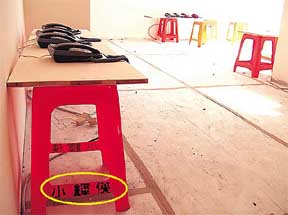
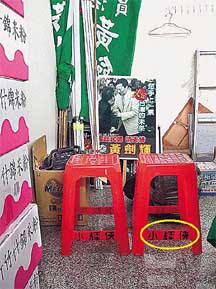

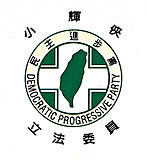
恶搞). Any number of other spoofs are included in Wikipedia.Everytime comes a pitfall, you just have to fall,
Tung Chee Wah rises as Superstar.
IQ Tong brings you Habour Fest, tickets free-of-charge,
If there's surplus, spending spree starts.
Roll out tanks to smash the piggies, that must be crazy,
Yet he's a golden baby.
Incompetents kept rambling on,
Who just bury MALICE, the five stars traitor?
Folk Guy's always with you! (Folk Guy's always with you!)
Flattery noise lasts for whole century.
Universal Suffrage! (Universal Suffrage!)
When properties crash it's worse than death.
Pawn your pants! Pawn your socks! Pawn Triumph!
Arrogance and mockery is everywhere,
Brown nosing you dare. Folk guy's always with you.
Star Ferry triggered riot, but that was history,
Your grenades brought serenity
Roll out tanks to smash the piggies, that must be crazy,
Yet he's a golden baby.
Incompetents kept rambling on,
Who just bury MALICE, the five stars traitor?
Tanks roll over piggies! (Folk Guy's always with you.)
Flattery noise lasts for whole century.
Universal Suffrage! (Universal Suffrage!)
Eight hundred crooks pick within a cage.
Play with you, Dine with you, Chairman's you.
Arrogance and mockery is everywhere
Brown nosing you dare. Tanks roll over piggies!
(Chairman Mao is on fire)
Flattery noise lasts for whole century.
Universal suffrage!
(Play with you~ Yeah)
(Anson Chan where are you?)
Eight hundred crooks pick within a cage.
Three Salutes, pray the world, bury the world.
Arrogance and mockery is everywhere,
Brown nosing you dare. Folk Guy's always with you!This is presently a controversial issue at the Chinese Wikipedia. Given the 'sensitive' subject, some people object to maintaining an entry for this song. Here are their reasons:
- Copyright violations. Fact: There is no copyright issue for this song under Hong Kong law.
- Spoofing (
Archives